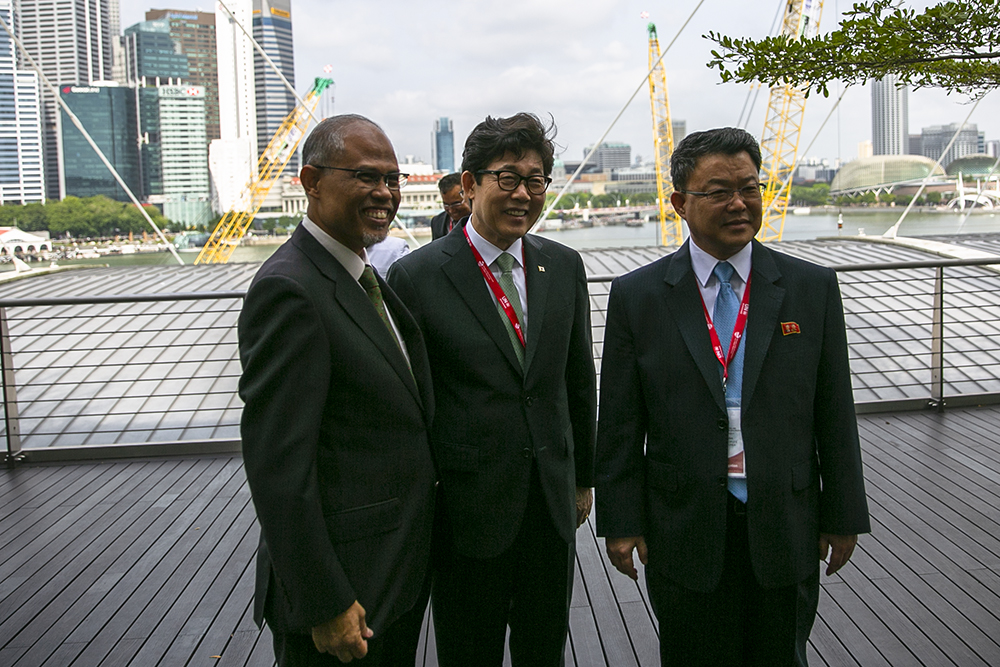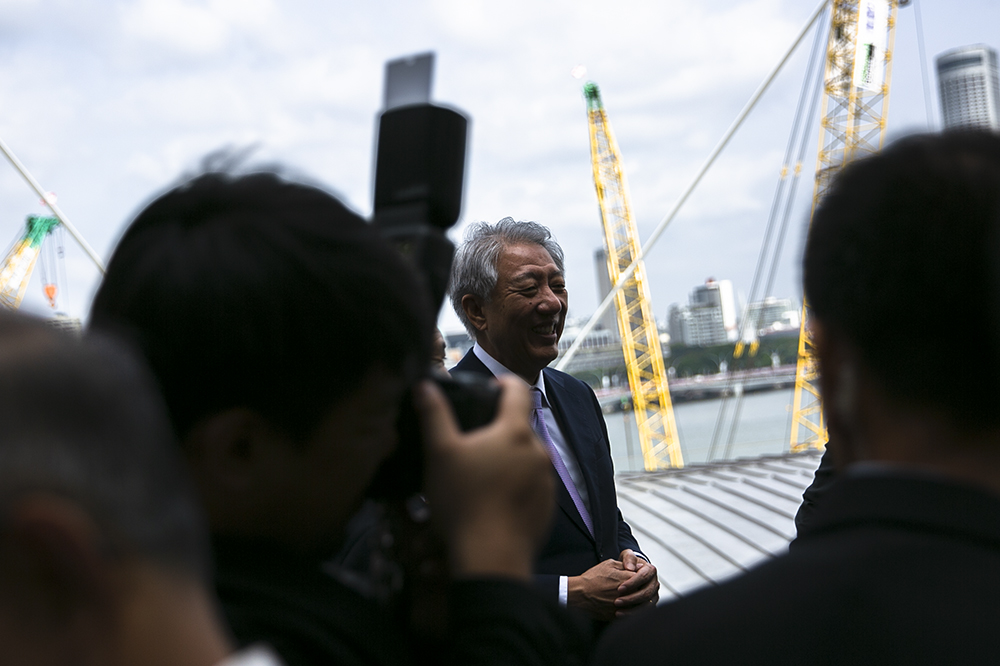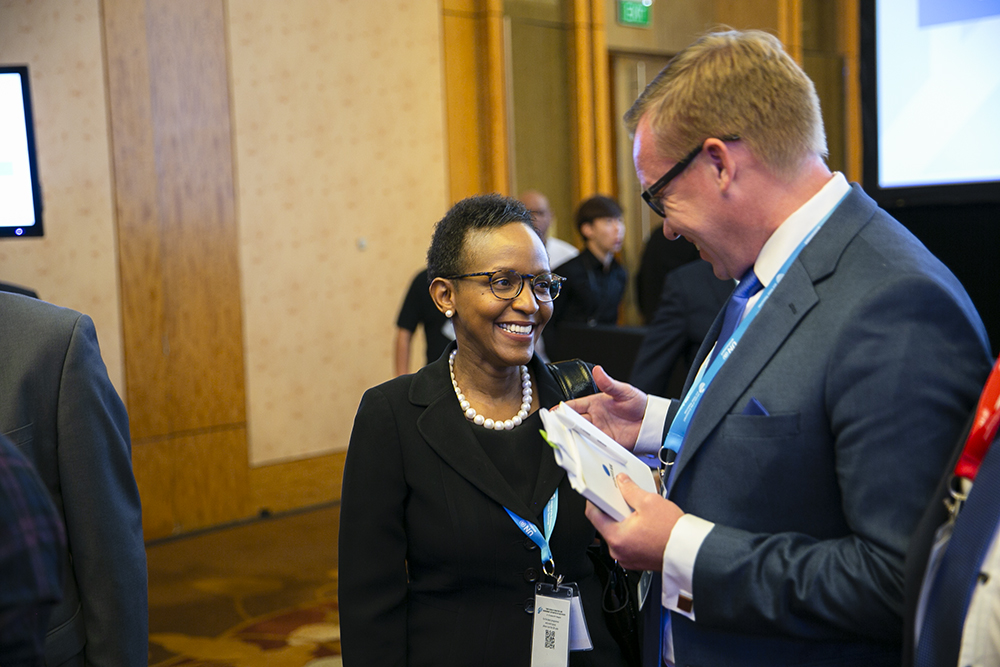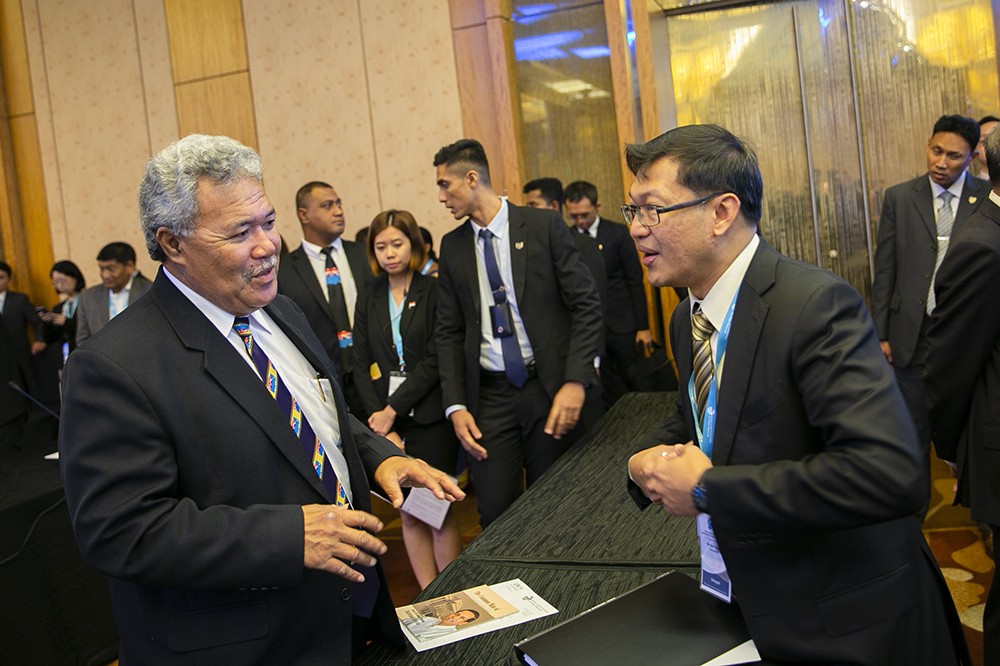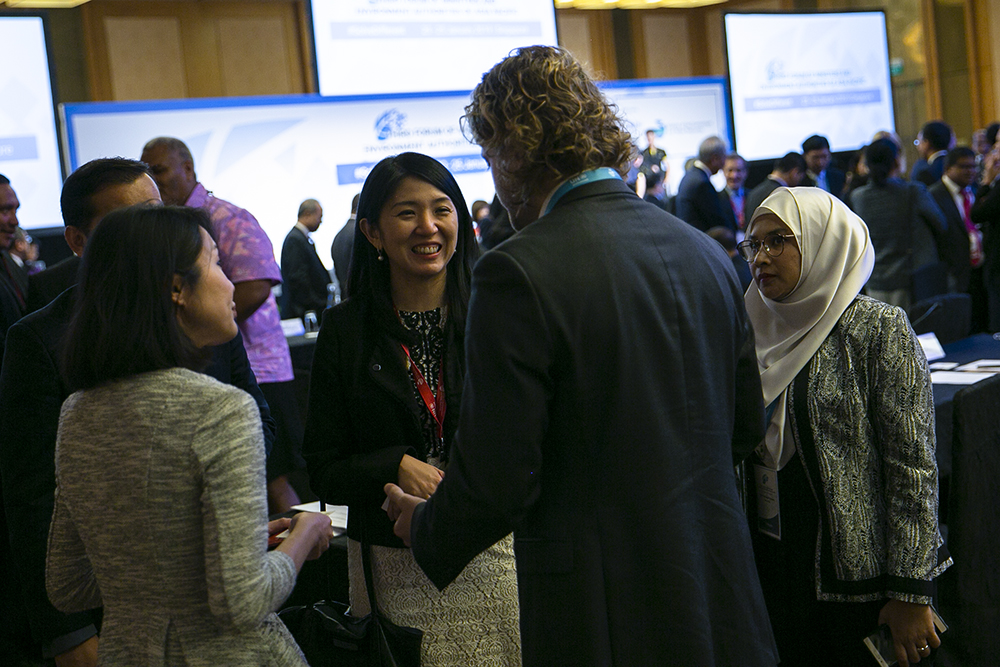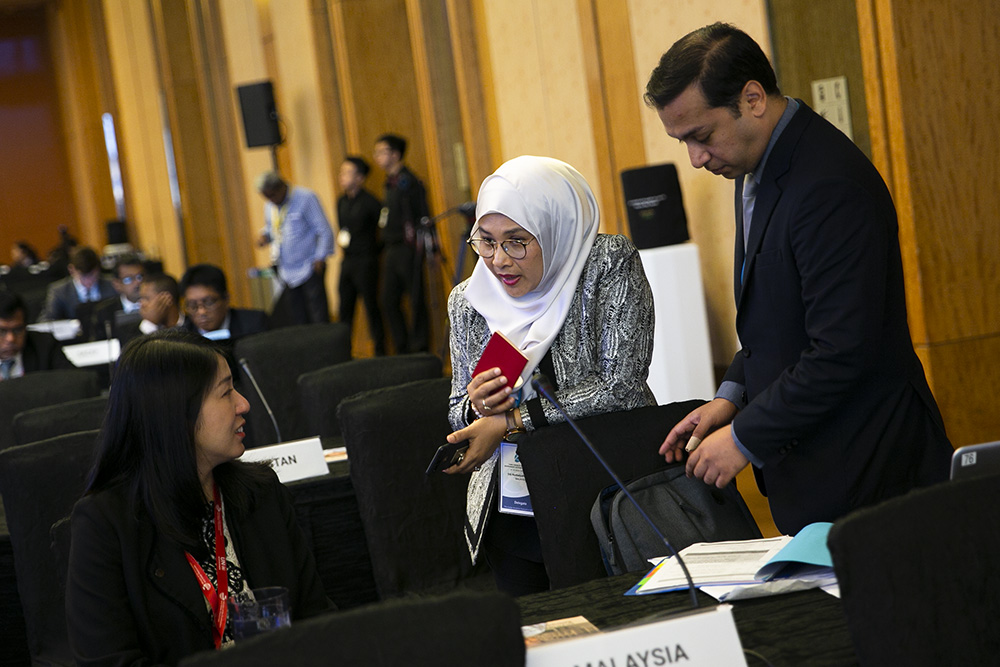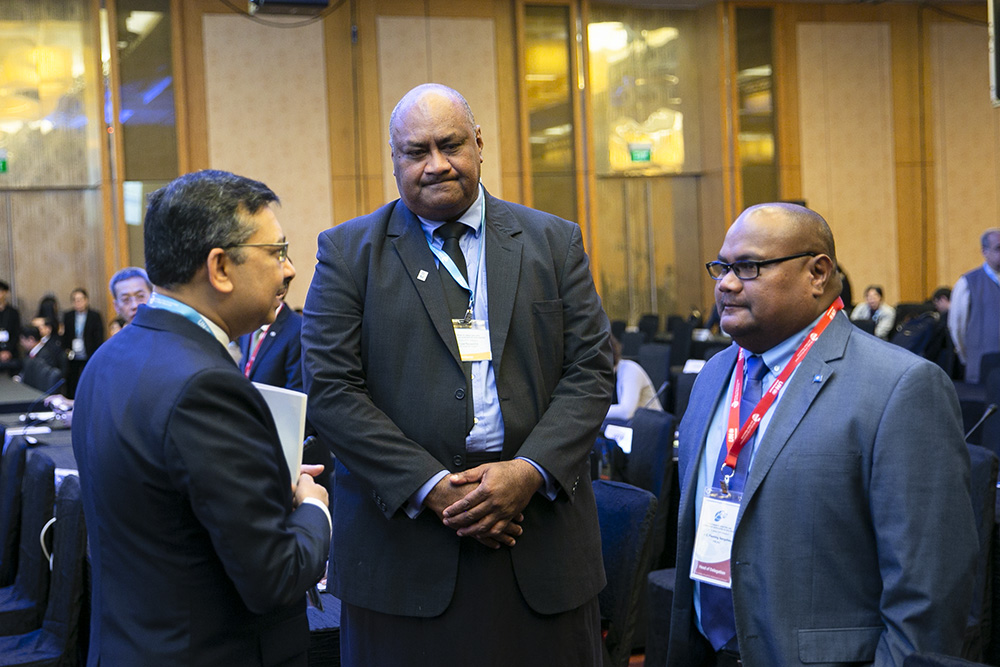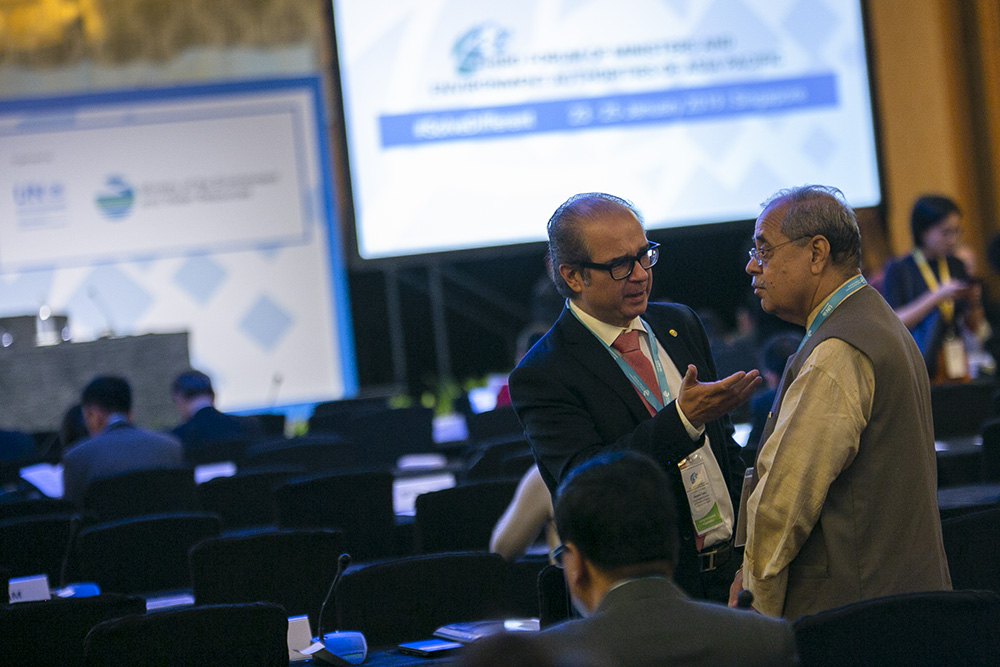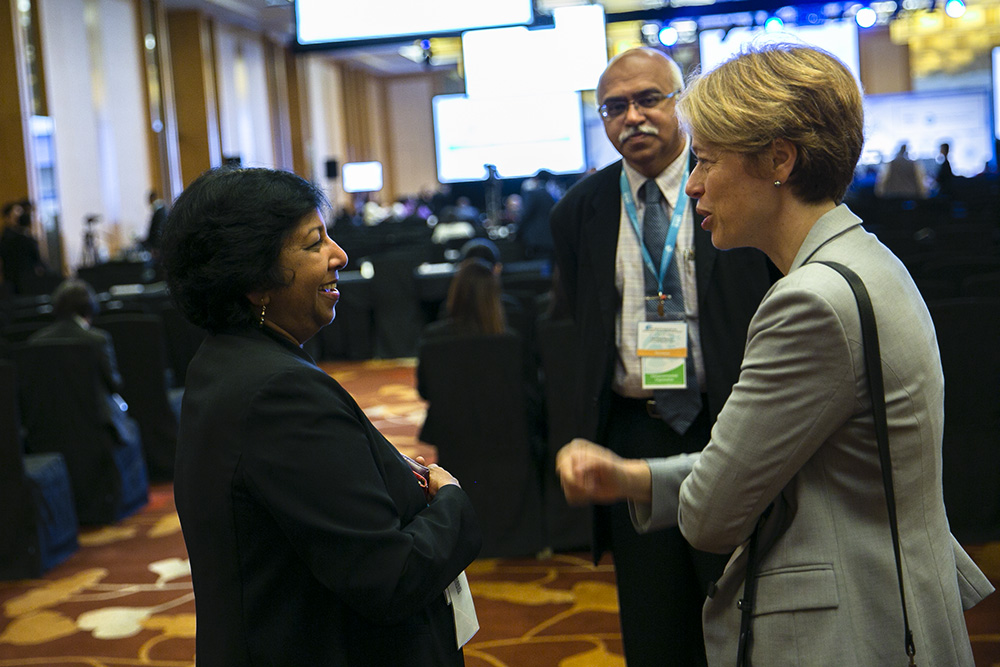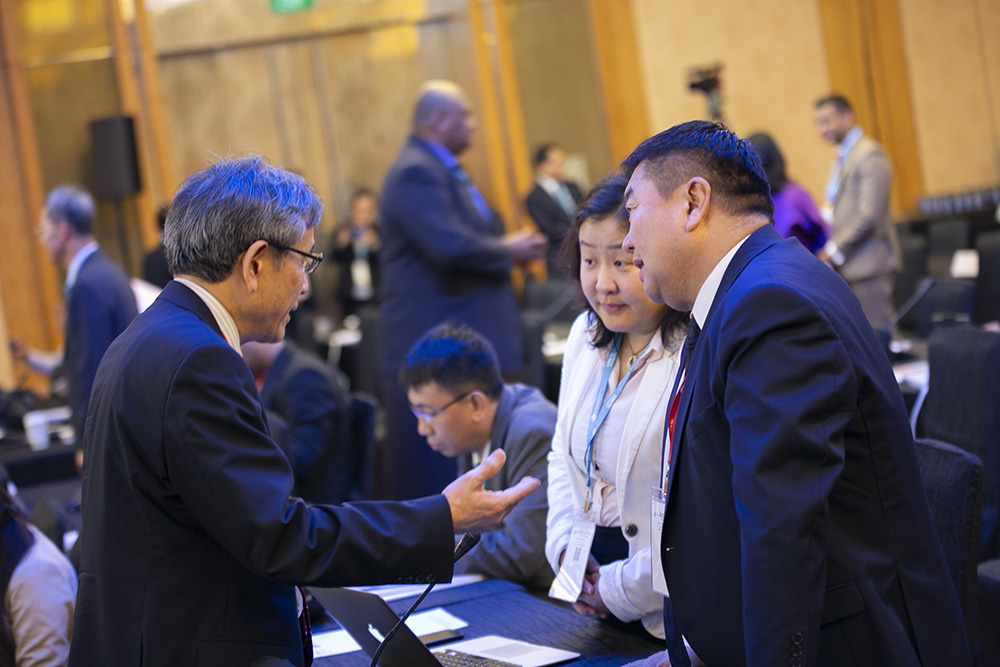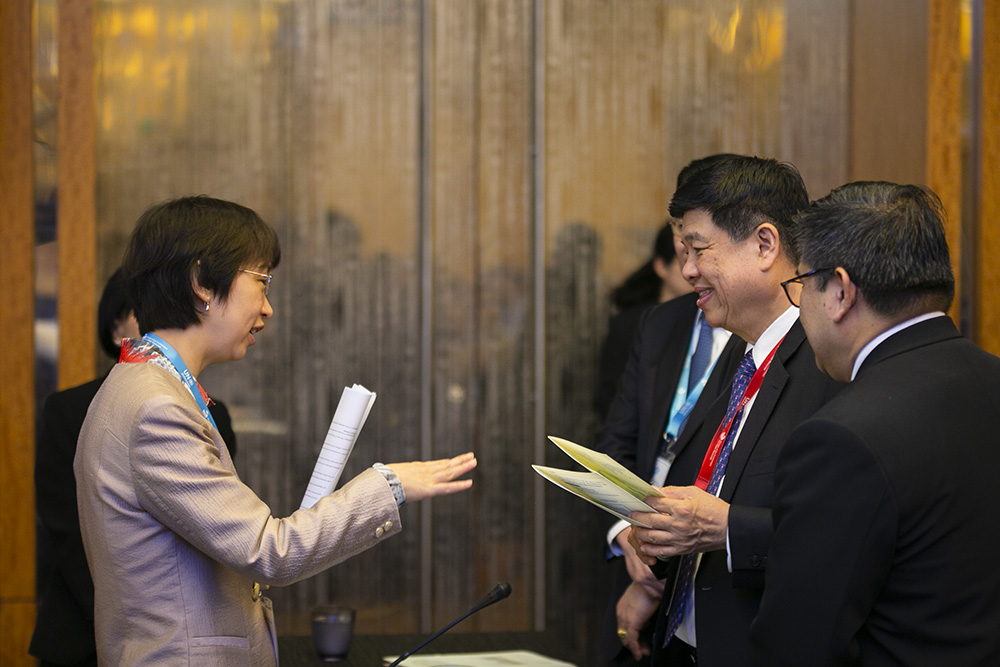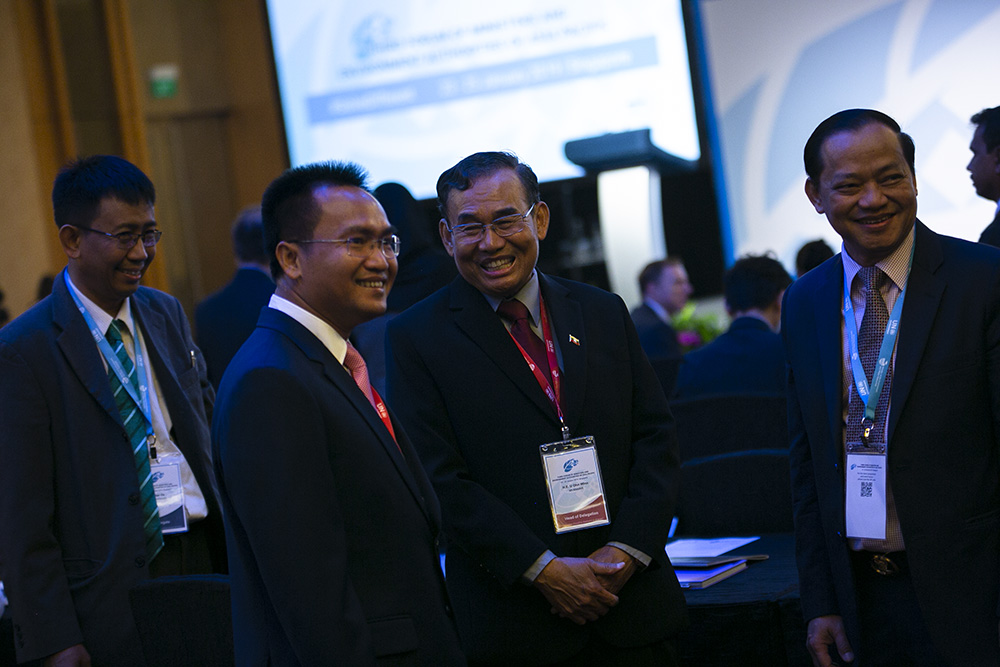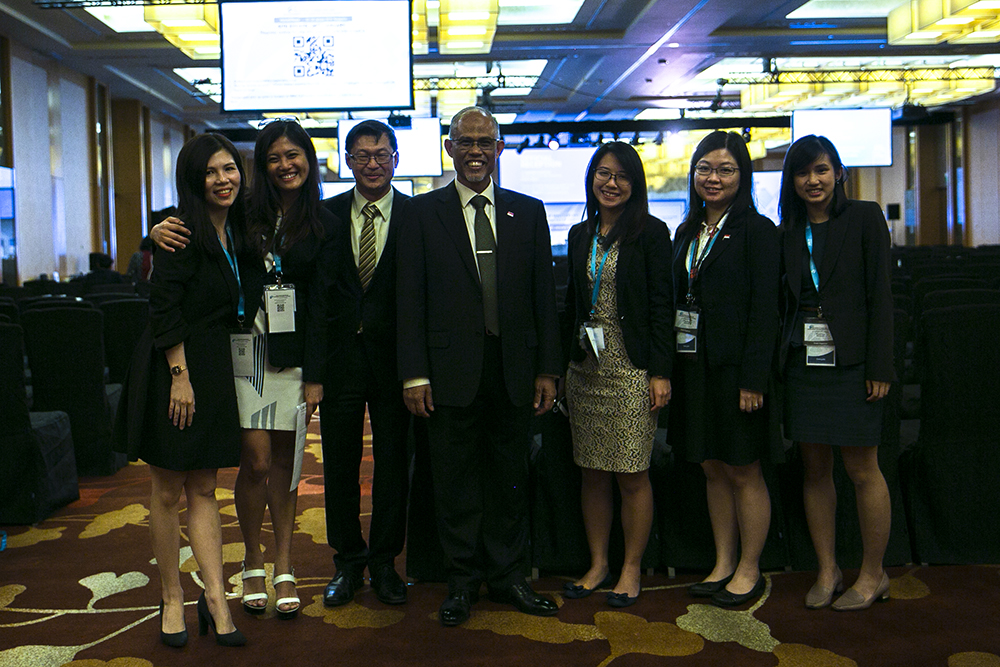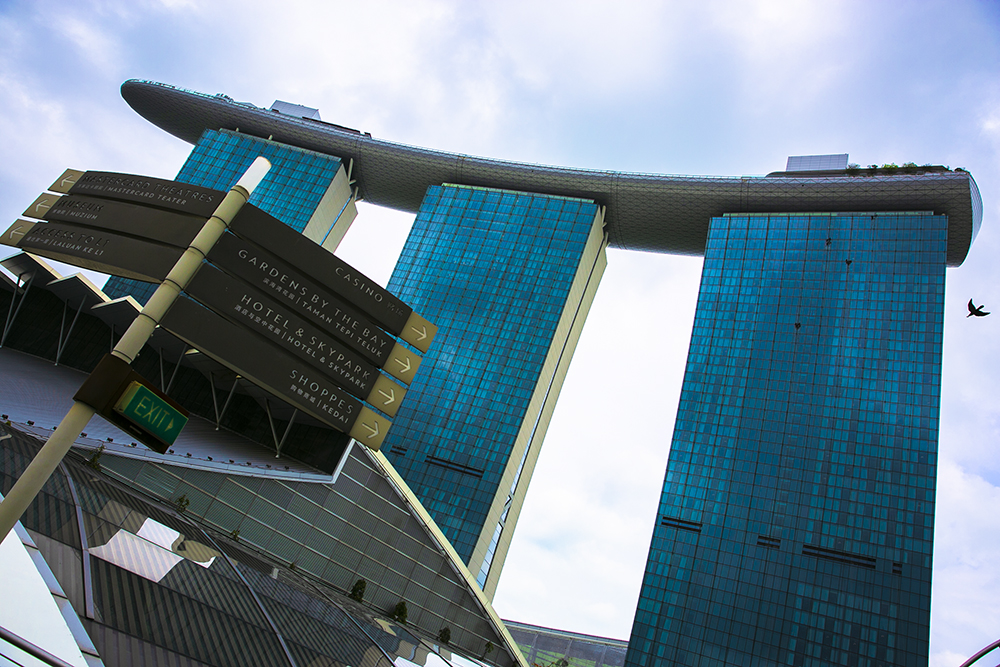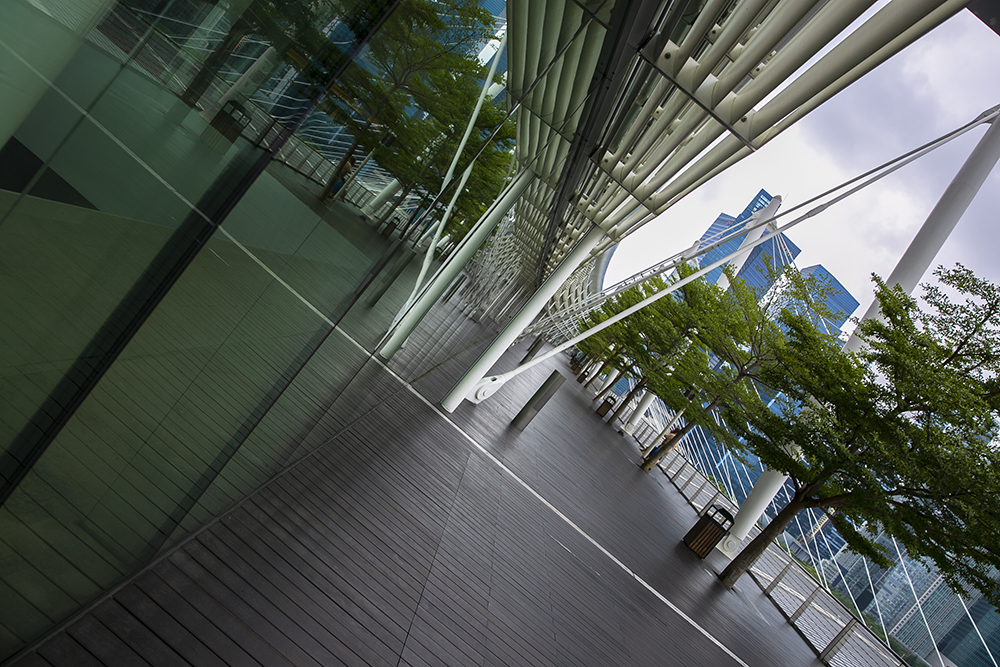Summary
Highlights for Friday, 25 January 2019
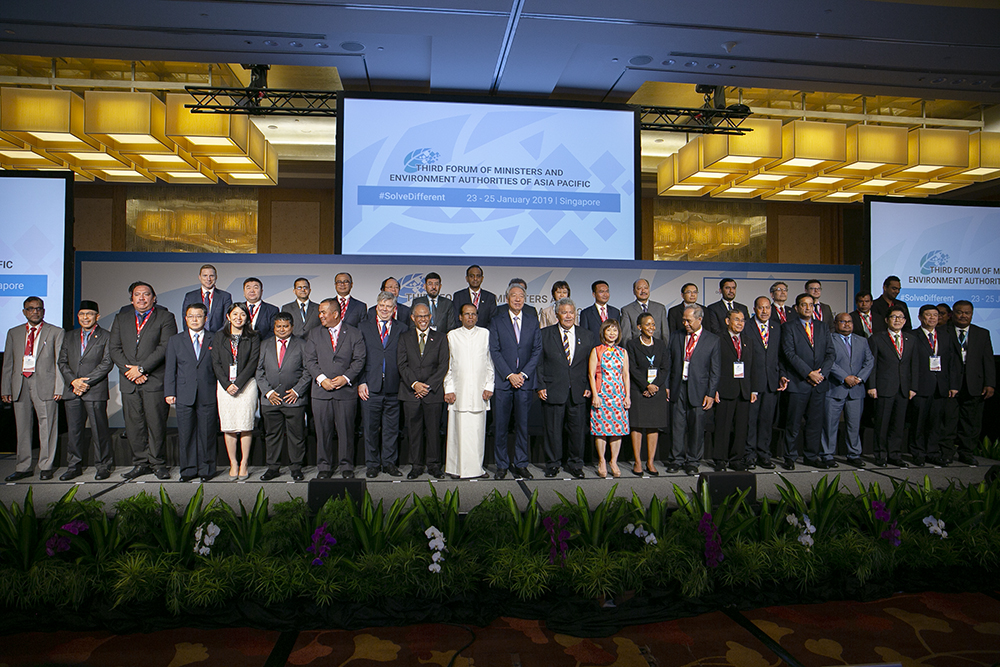
The Third Forum of Ministers and Environment Authorities of Asia Pacific entered its third and final day as ministers and high-level delegates met in plenary and two dialogue sessions on policy support and financing for innovative solutions for sustainable consumption and production (SCP).Masagos Zulkifli, Minister of Environment and Water Resources, Singapore, welcomed delegates, and called for embracing a new form of economic growth that does not purely rely on resource exploitation, for example, through new industries that generate products from waste. Siim Kiisler, Minister of Environment, Estonia, and President of UNEA, outlined three main priorities for UNEA: to promote sustainable and efficient resource management; ensure the collection and use of environmental data; and support the meaningful engagement of civil society, the private sector, and academia. In his keynote address, Teo Chee Hean, Deputy Prime Minister, Singapore, noted that solutions cannot only be achieved from the top down, and that, “every citizen has a part to play in putting us on a path to sustainable development.”Maithripala Sirisena, President and Minister of Mahaweli Development & Environment, Sri Lanka, called for broader regional cooperation on environmental issues. Enele Sosene Sopoaga, Prime Minister, Tuvalu, drew attention to depletion of fish stocks, and called for creating an Asia-Pacific regional leaders’ sustainable development forum.In discussions, many delegates highlighted national actions on SCP and innovative solutions, such as floating solar panels, road construction using plastic waste, and ‘zero-energy buildings.’ Several delegates highlighted issues of plastic waste and marine litter, and called for tax and policy incentives to promote more sustainable alternatives.At the close of the day, delegates reviewed and adopted the report of the senior officials’ meeting of the previous day and the Chair’s summary of the ministerial segment, with minor amendments.Cho Myung-rae, Minister of Environment, Republic of Korea, announced that his country will host the Fourth Forum of Ministers and Environment Authorities of Asia Pacific in 2020, ahead of UNEA-5. Zulkifli closed the meeting at 6:16 pm.In the evening, delegates attended an official reception showcasing Singapore’s rich heritage of hawker street food, held at the downtown reservoir, Marina Barrage.
IISD Reporting Services, through its ENB+ Meeting Coverage, provided daily web coverage and a summary report from the 3rd Forum of Ministers and Environment Authorities of Asia Pacific, which is available in HTML and PDF.
Photos by IISD/ENB | Sean Wu
For photo reprint permissions, please follow instructions at our Attribution Regulations for Meeting Photo Usage Page
Morning Sessions
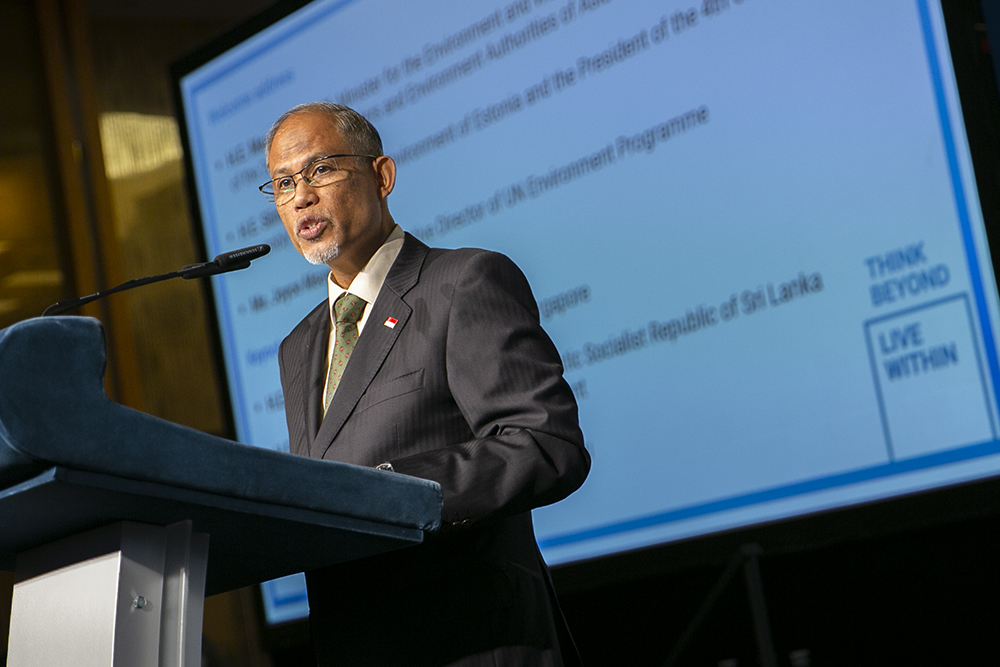
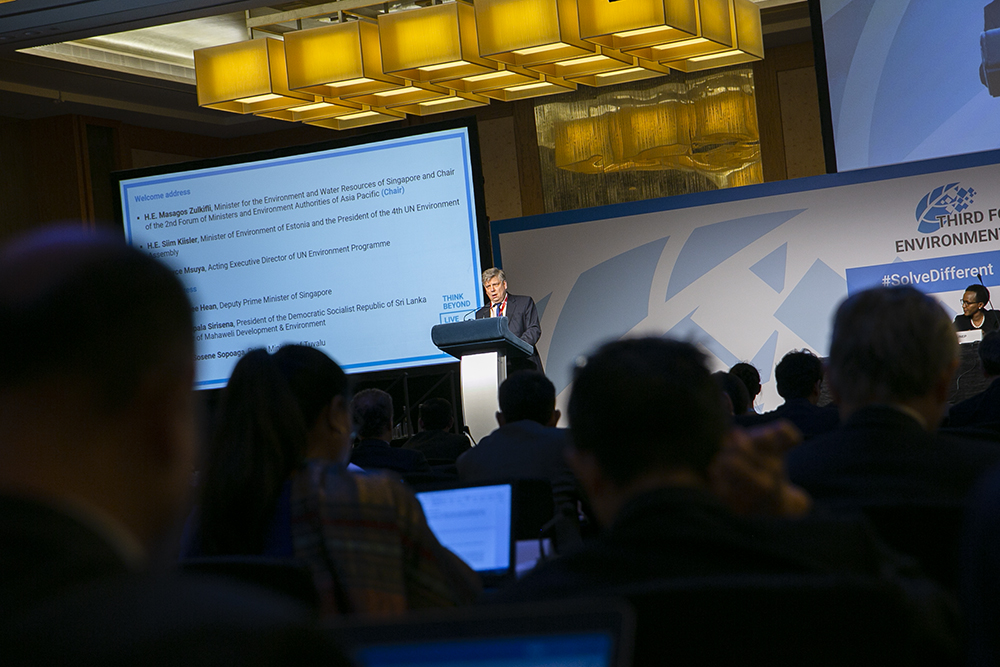
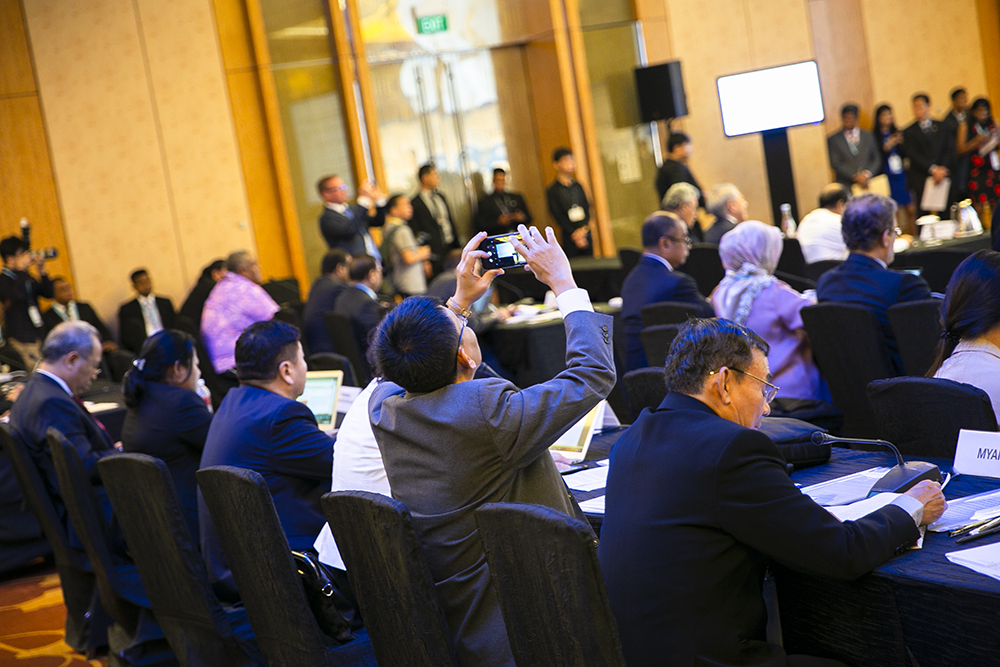
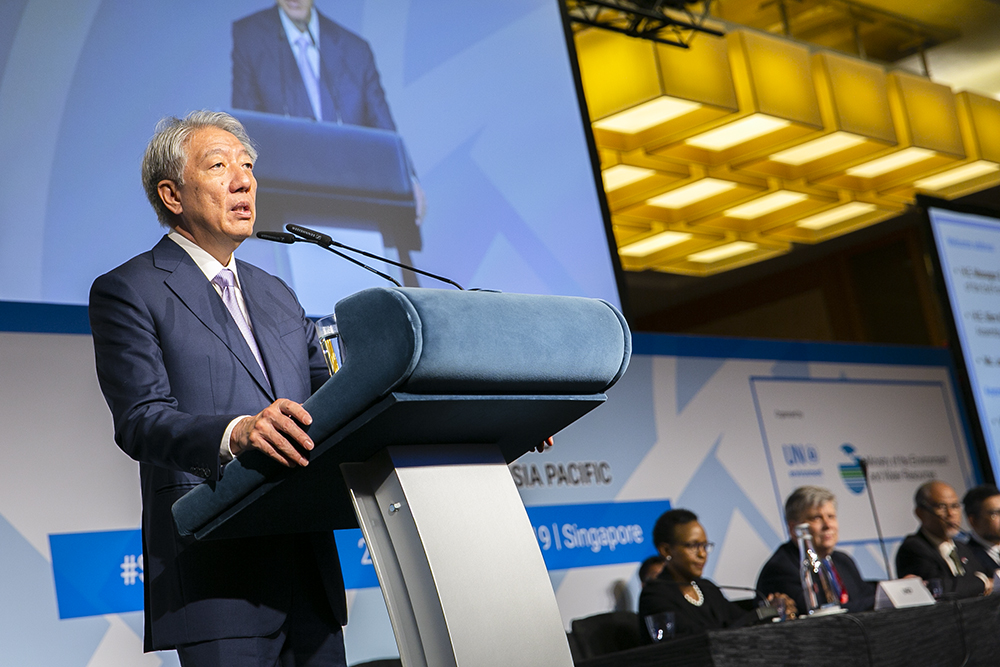
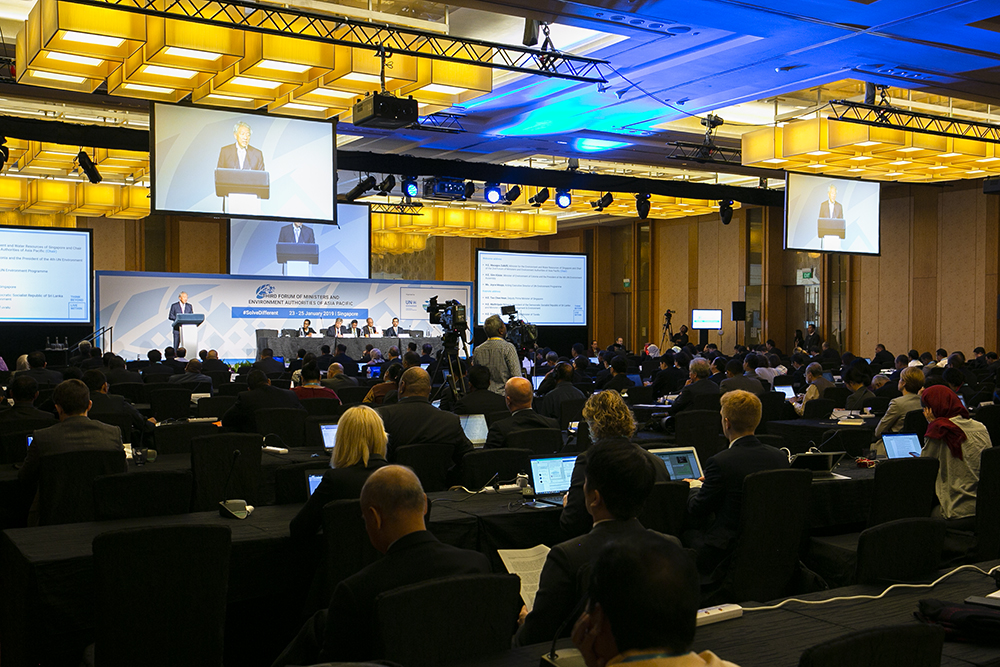
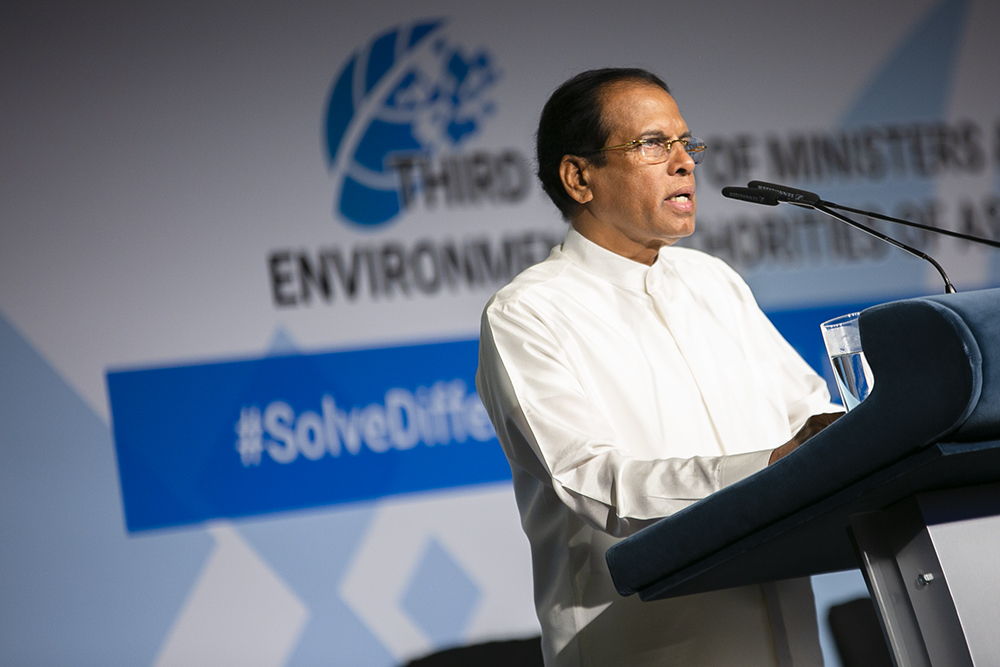
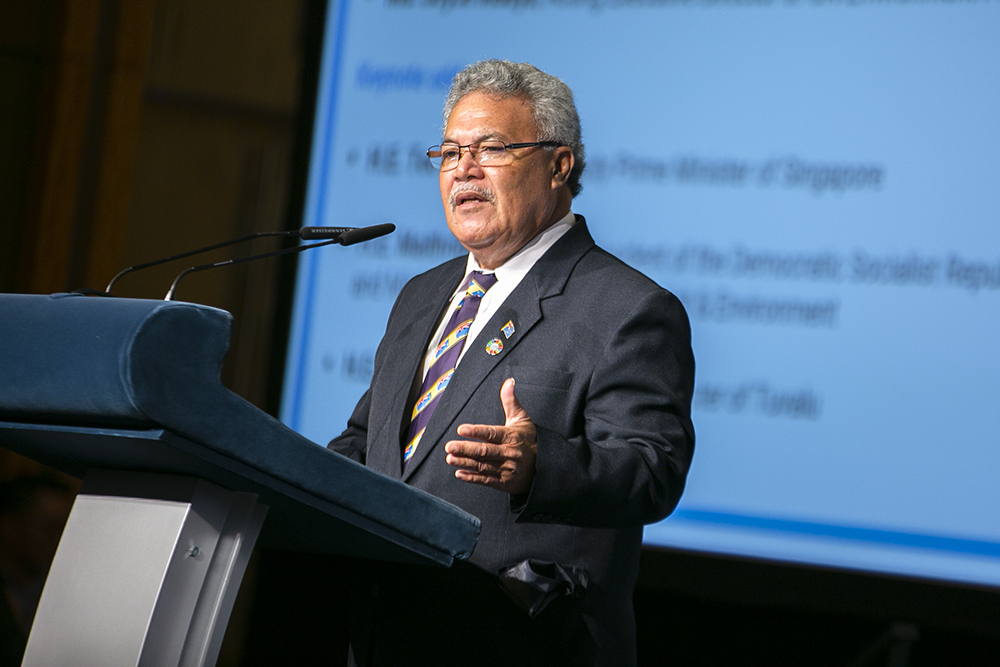
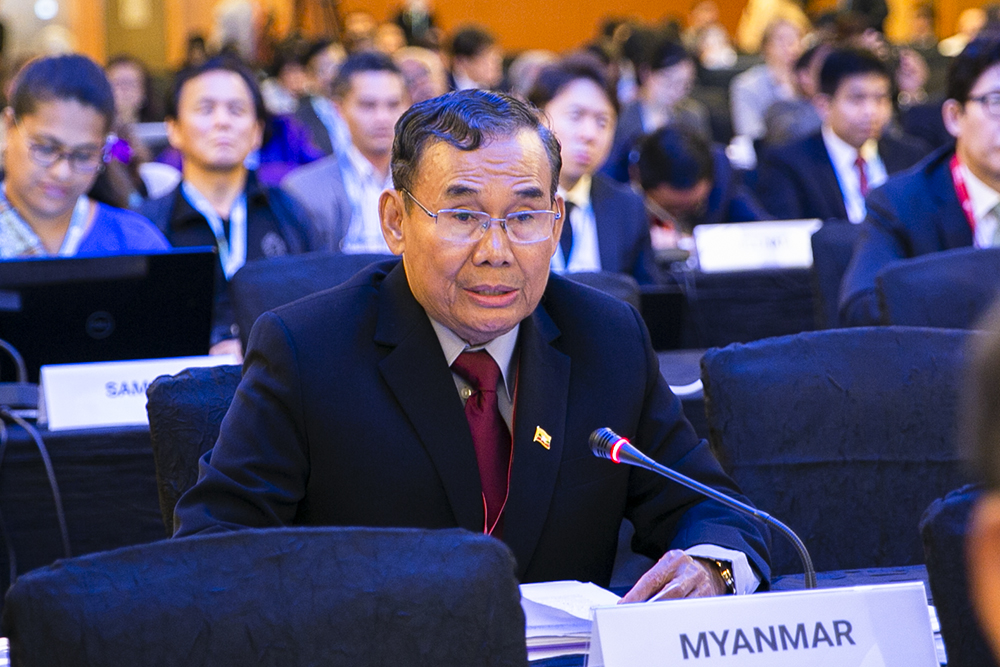
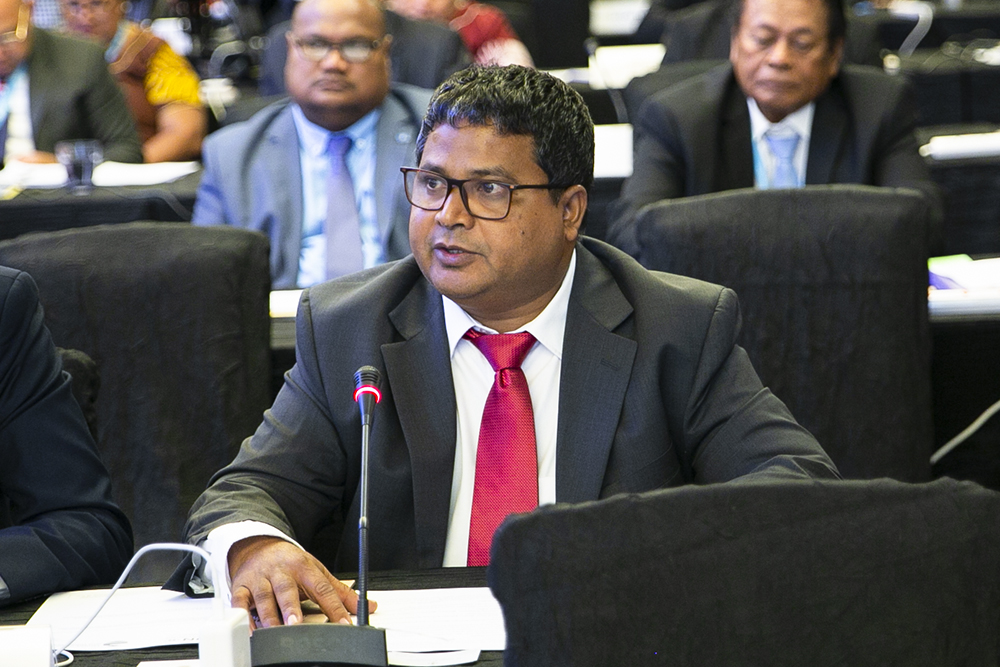
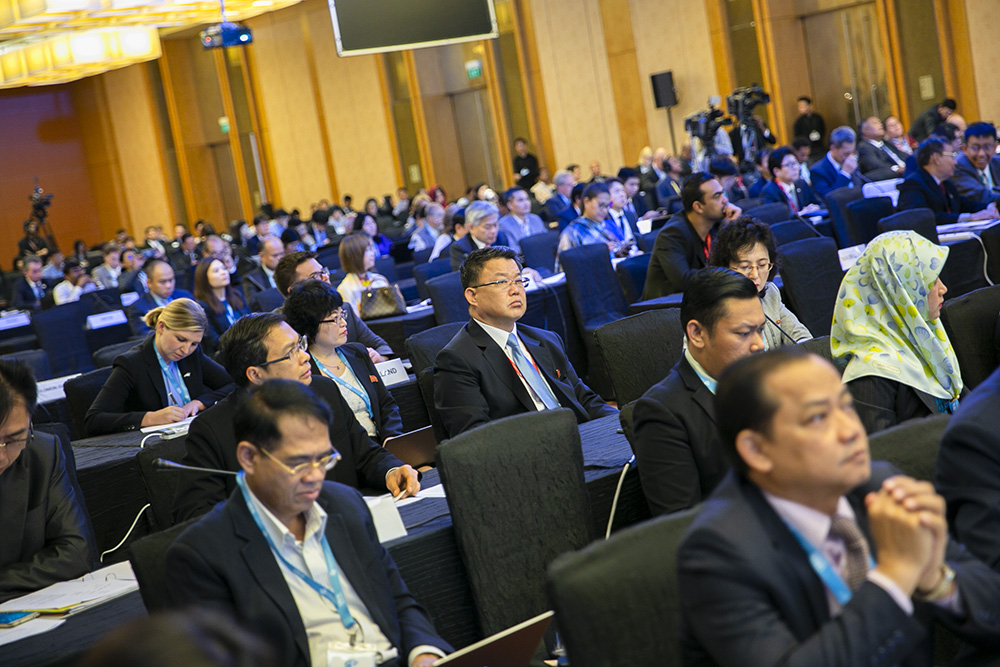
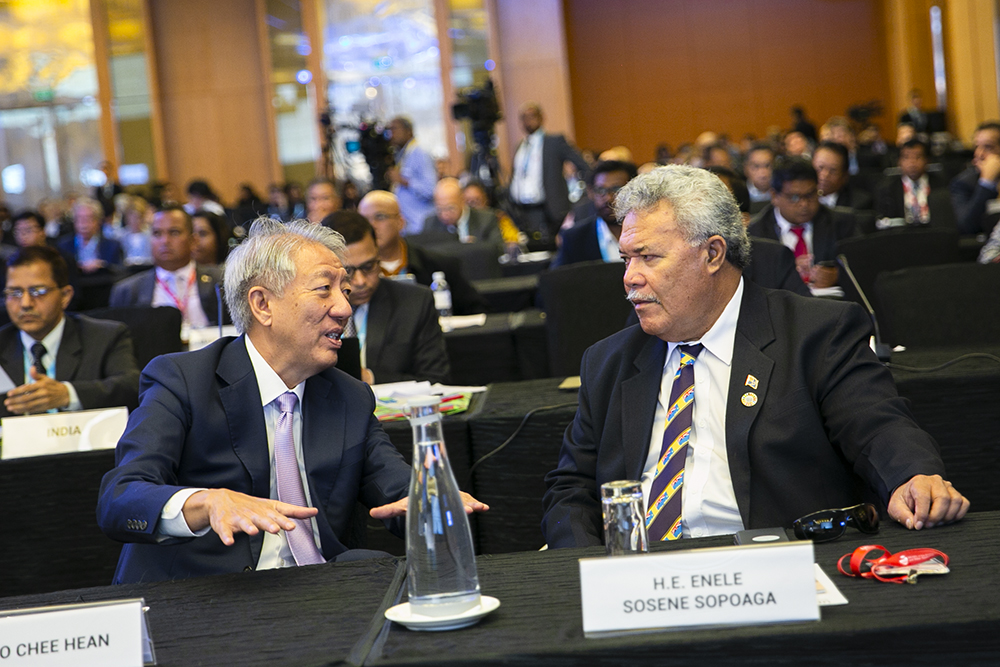
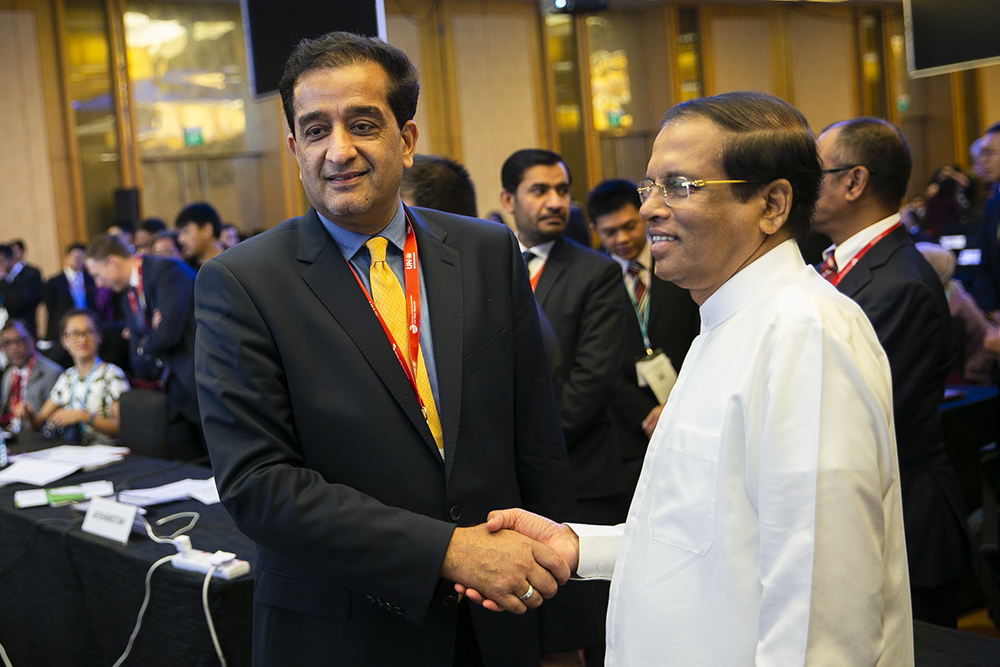
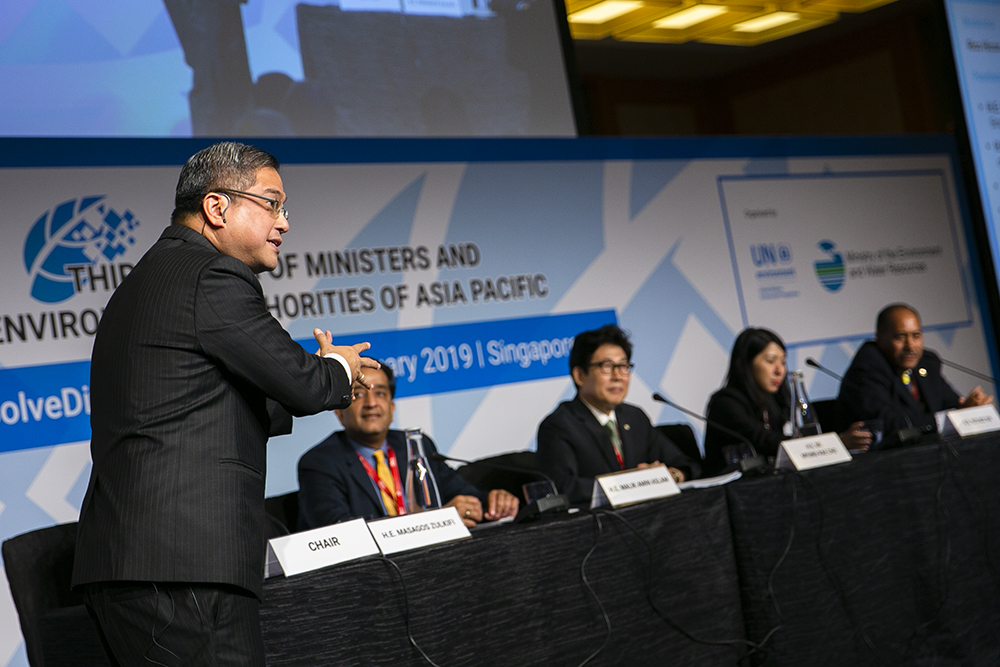
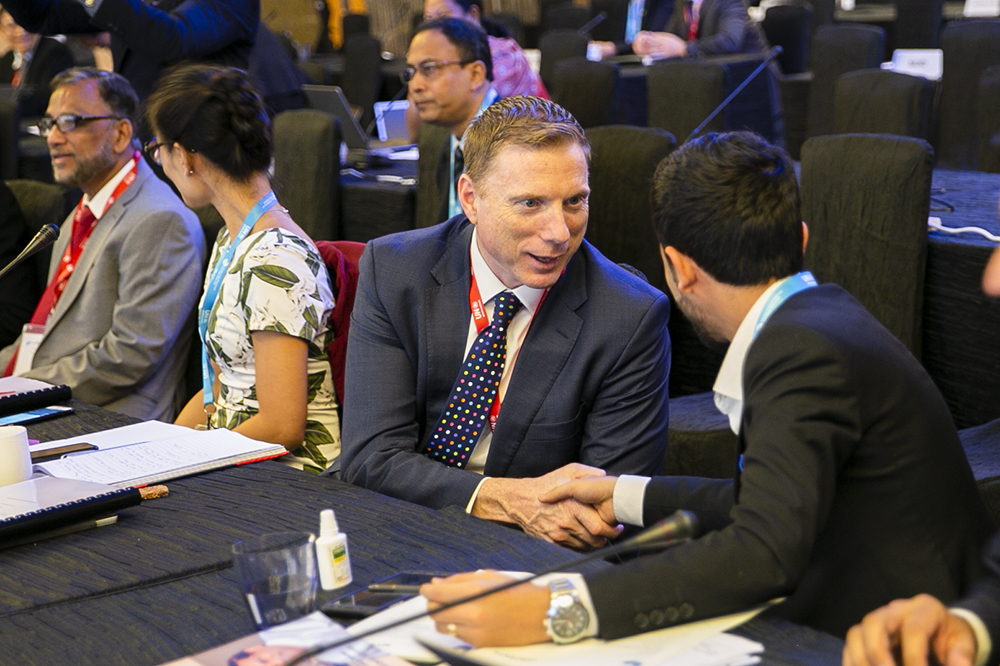
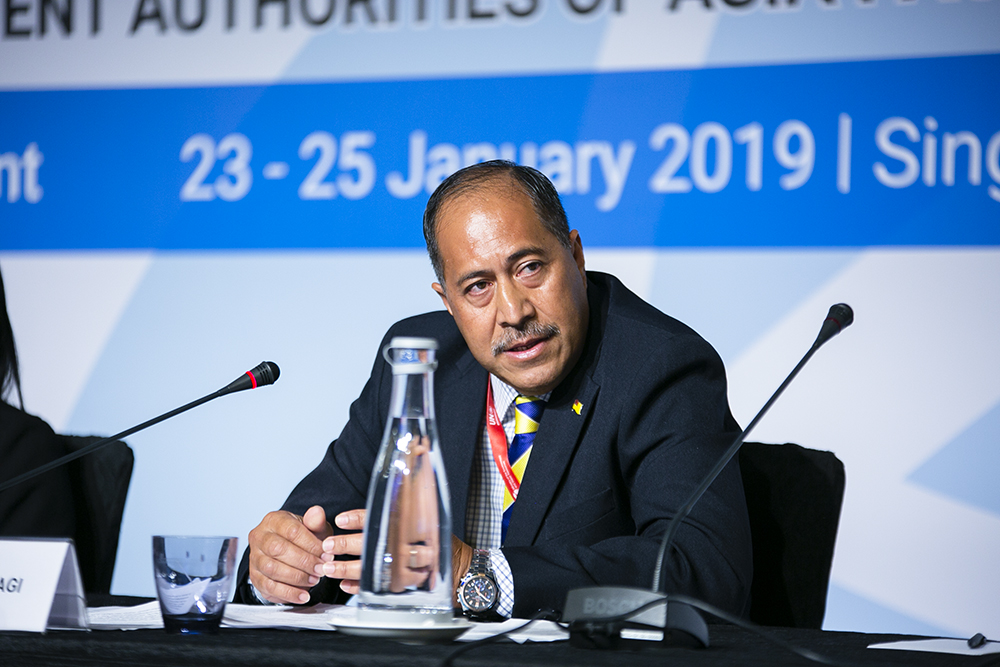
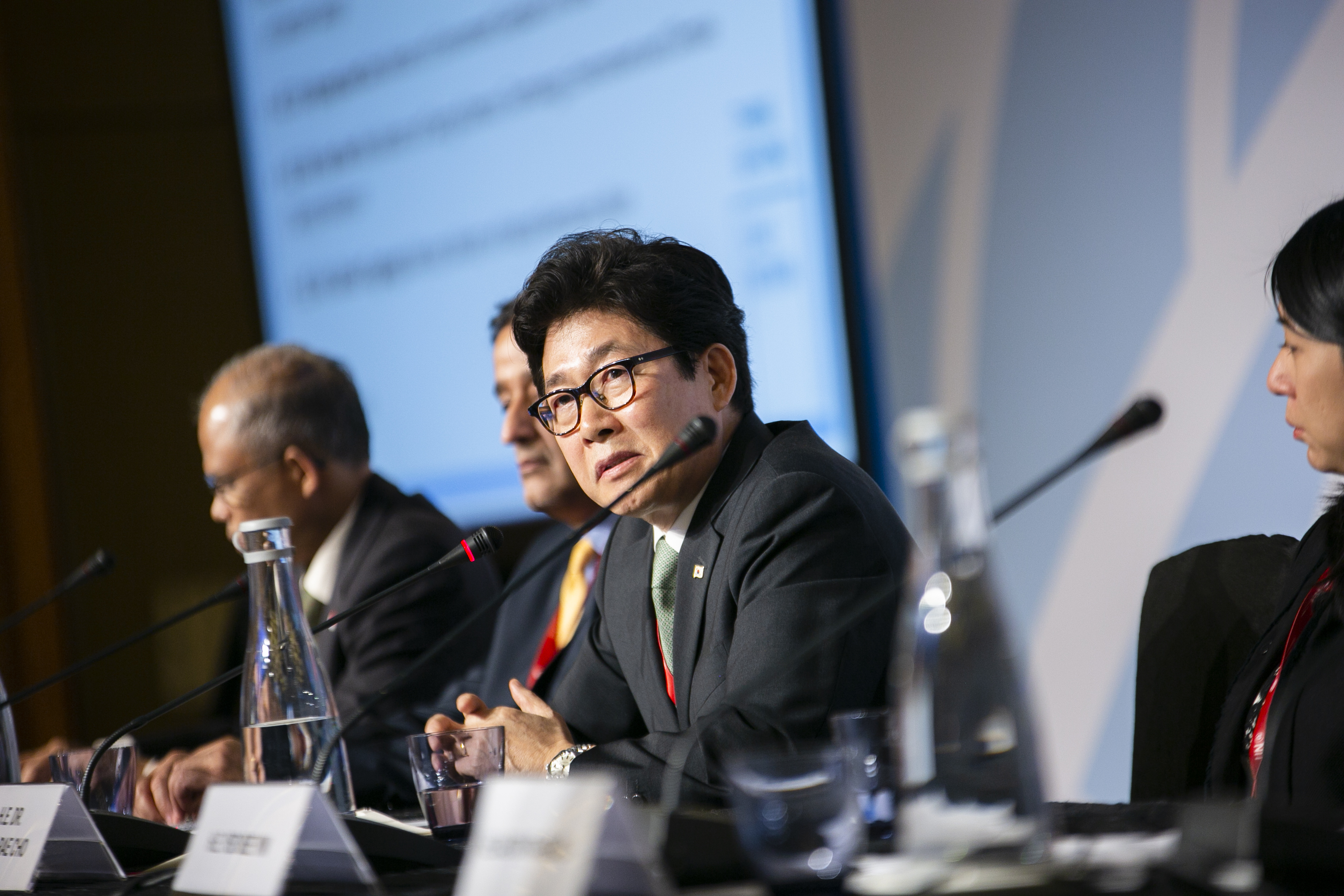
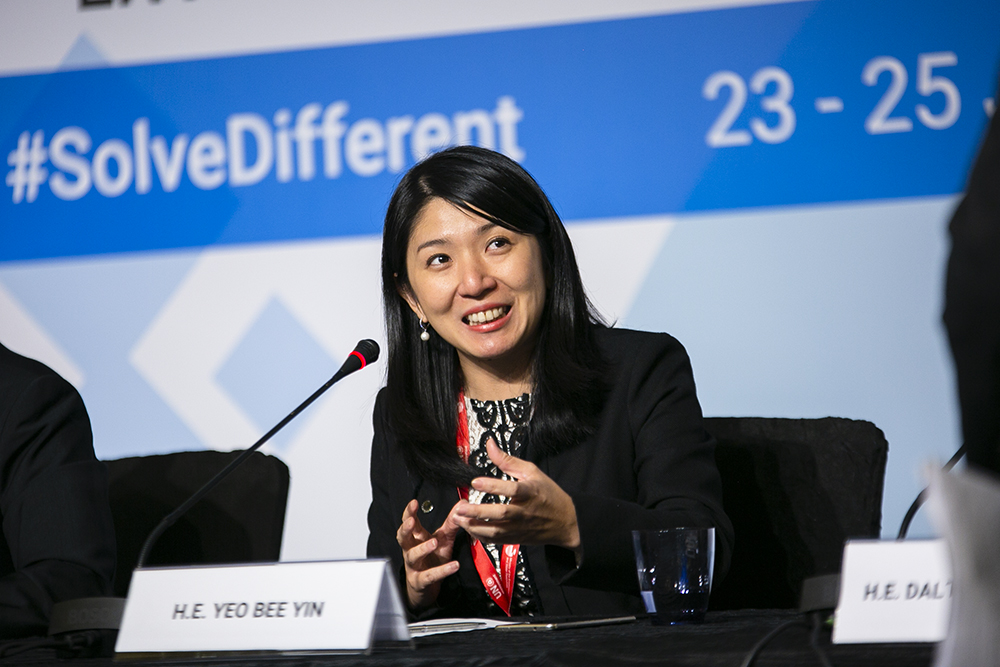
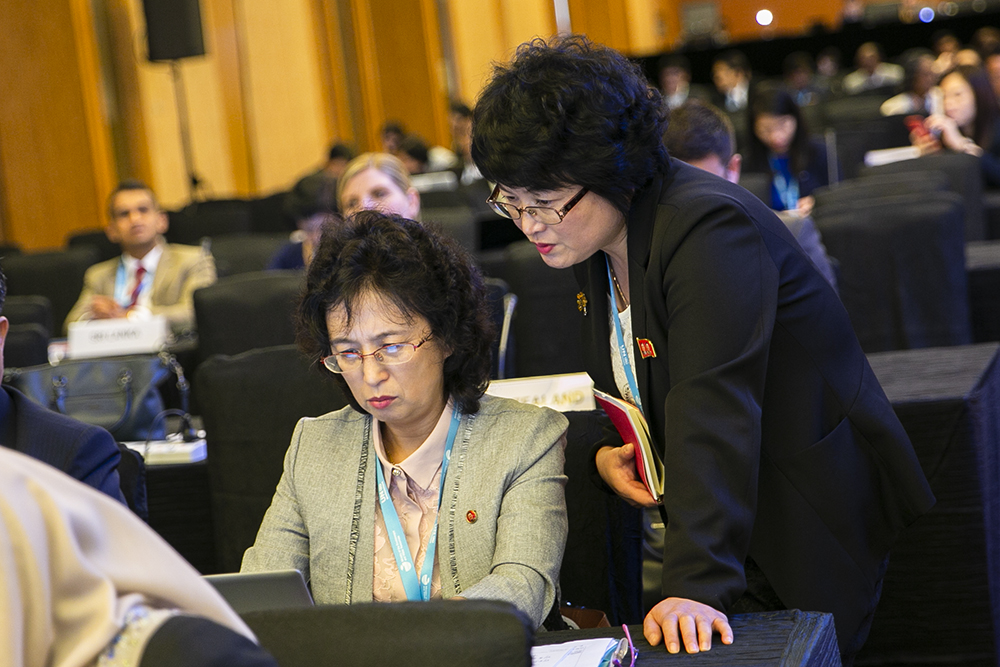
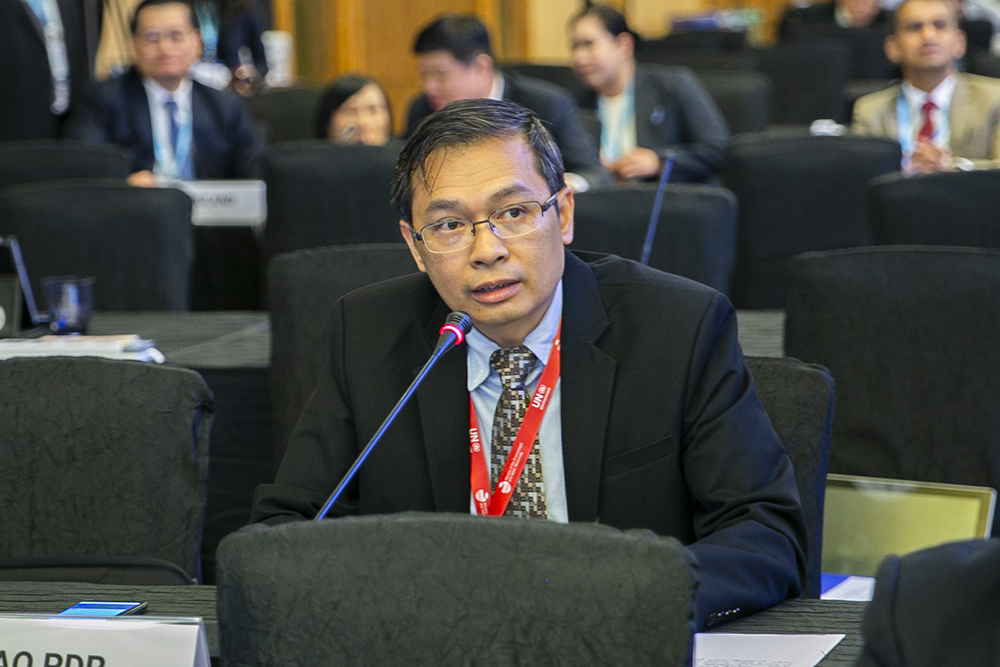
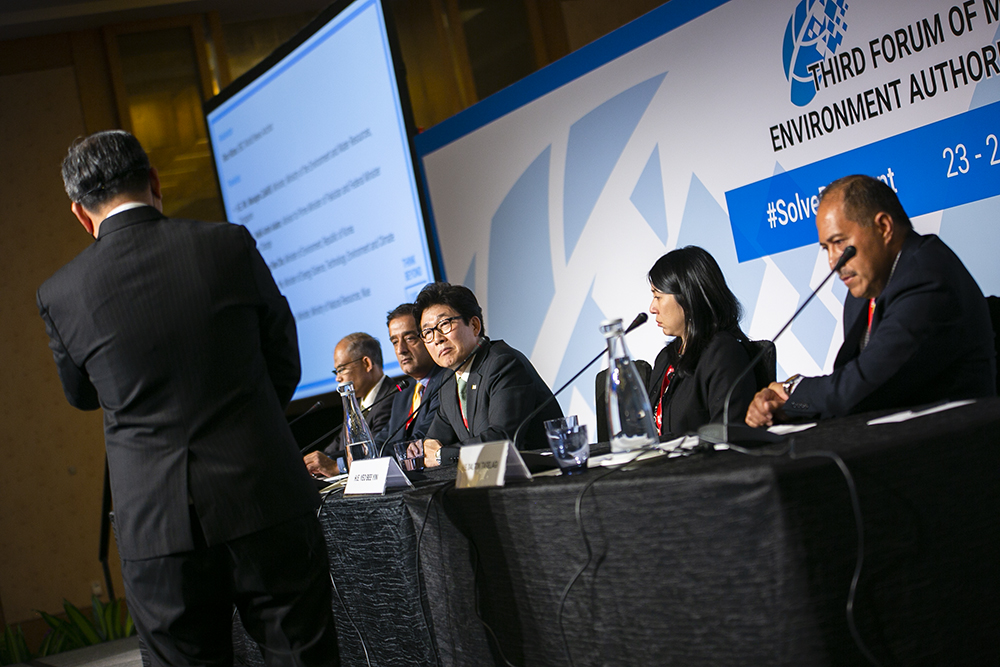
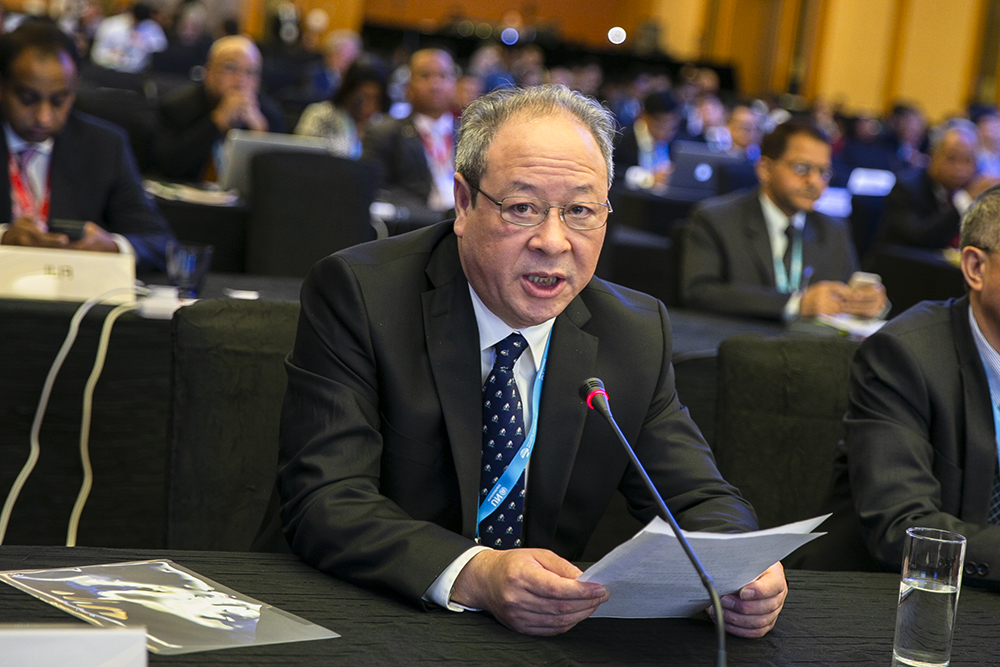
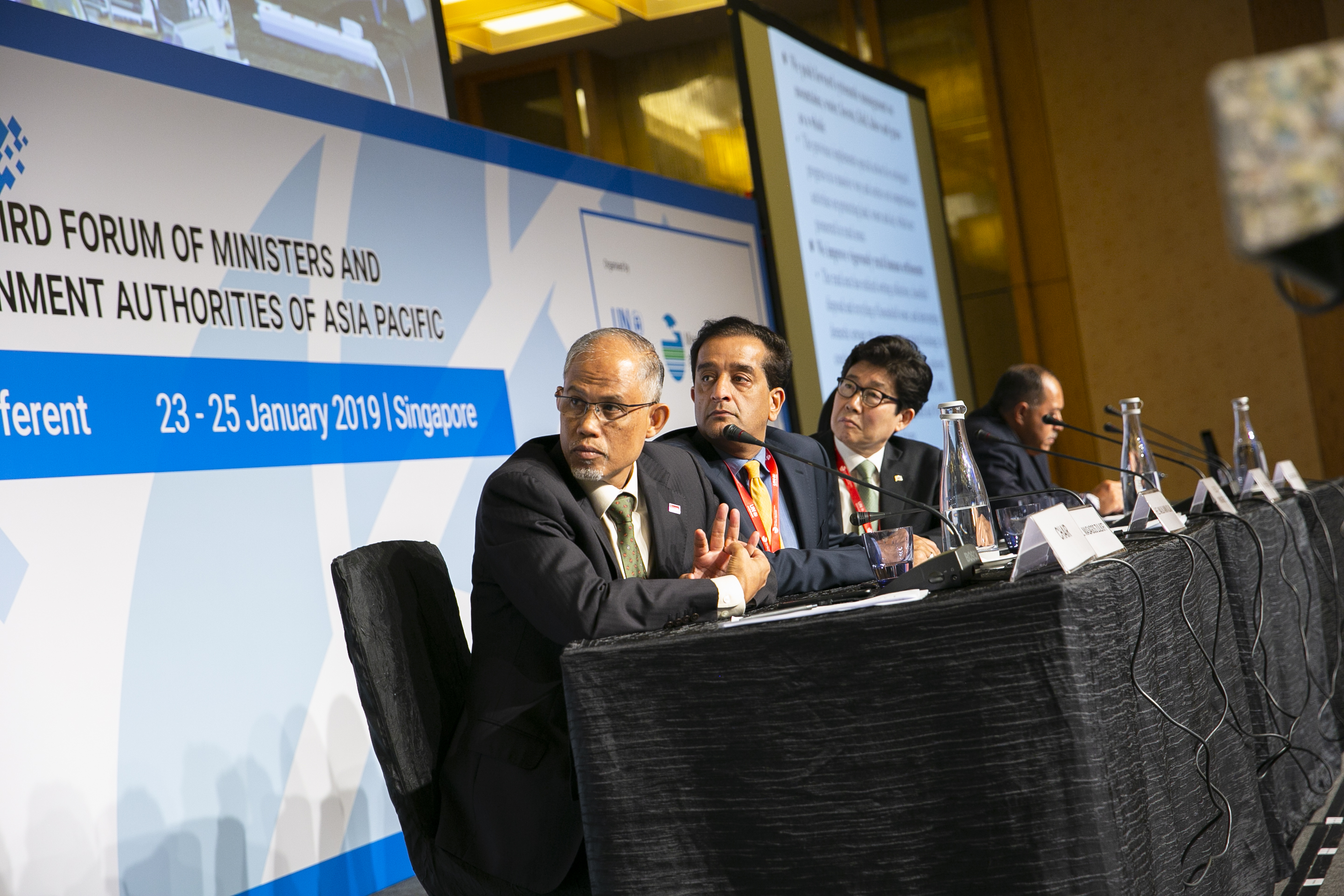
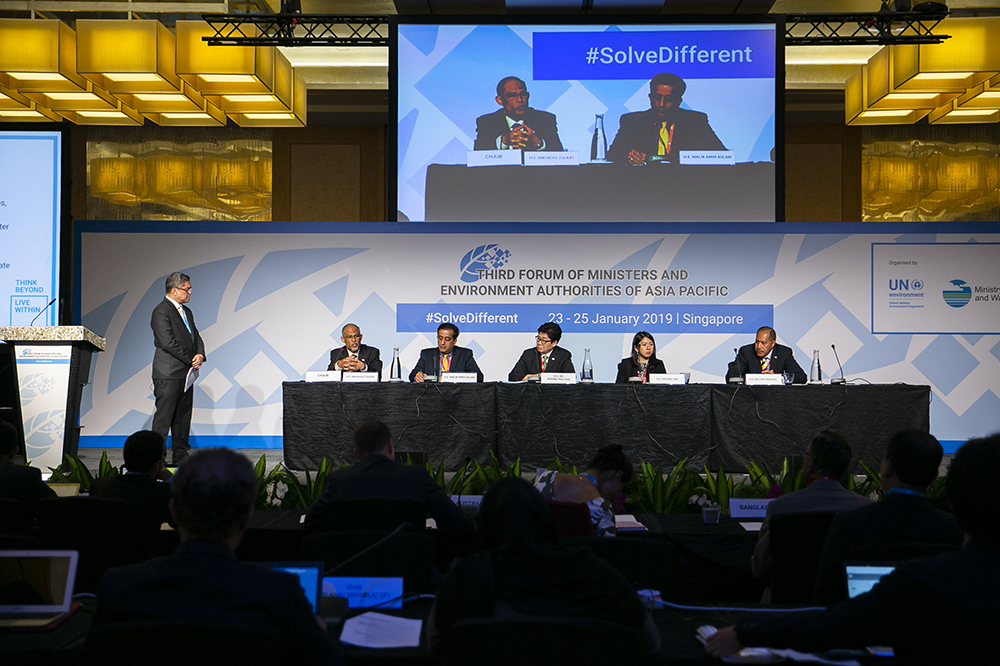
Afternoon Sessions
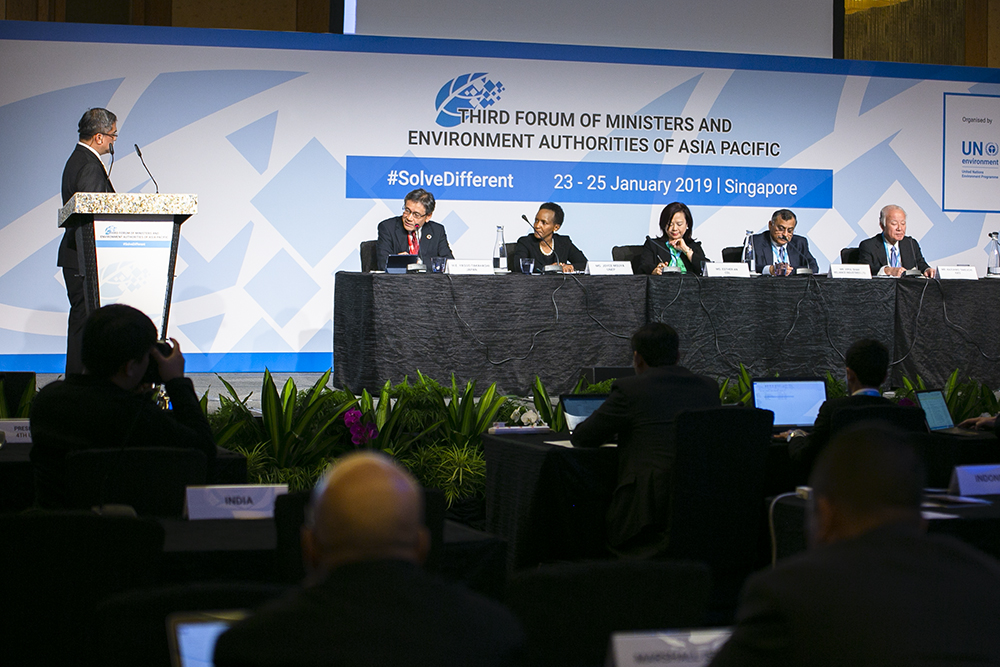
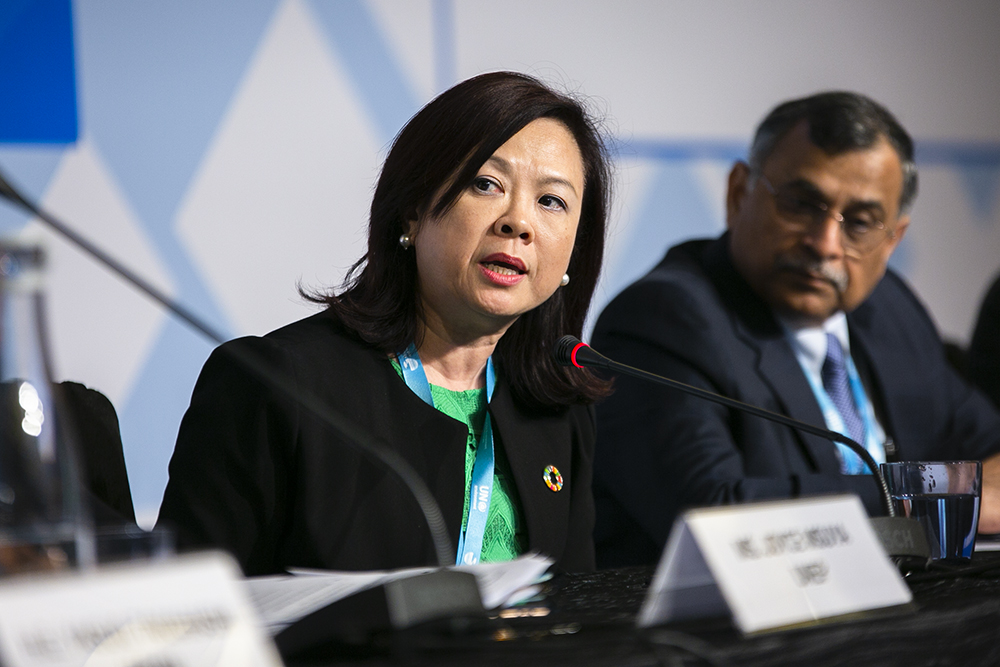
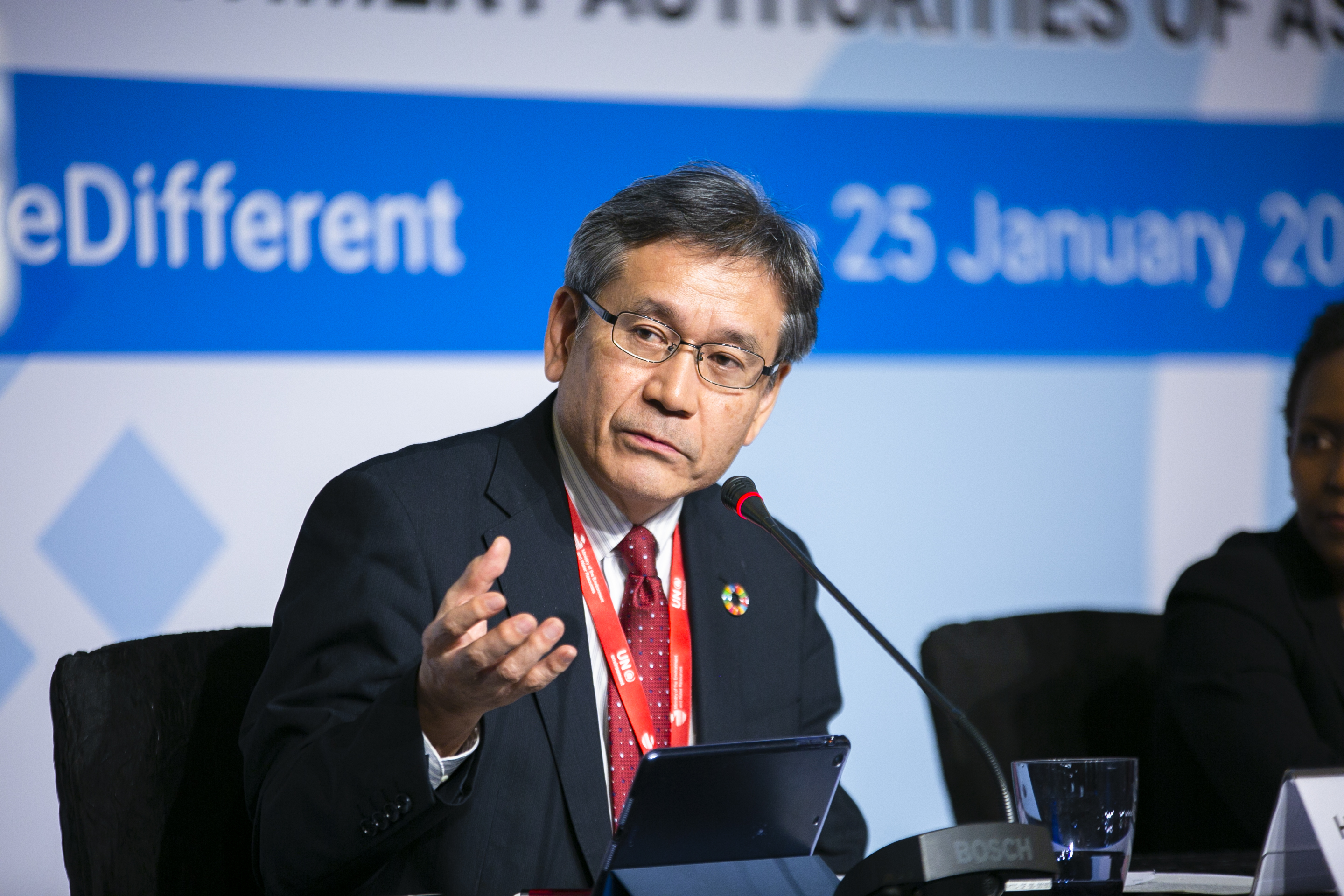
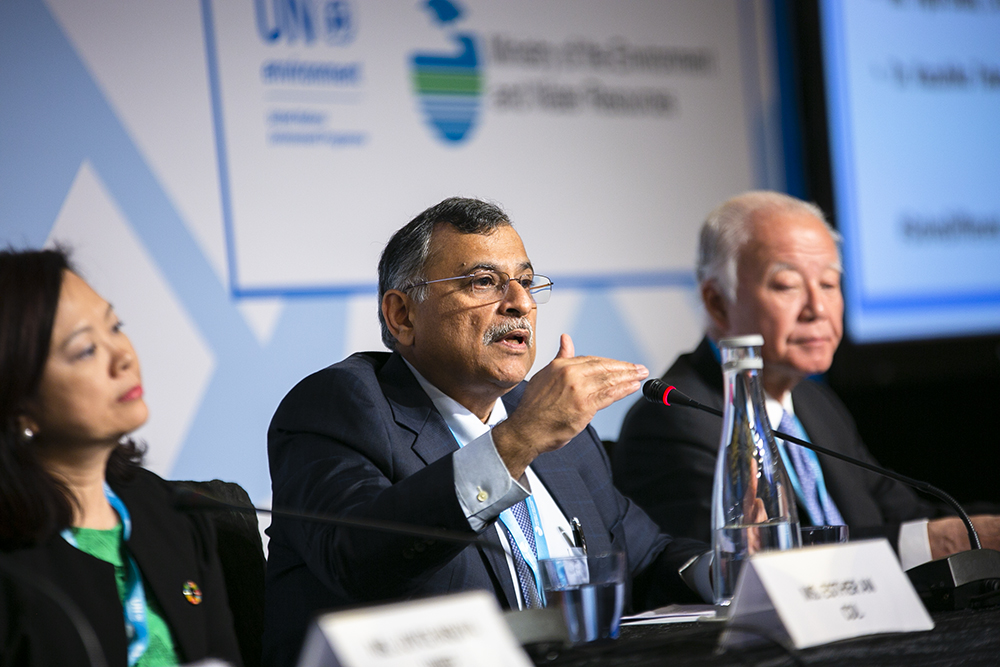
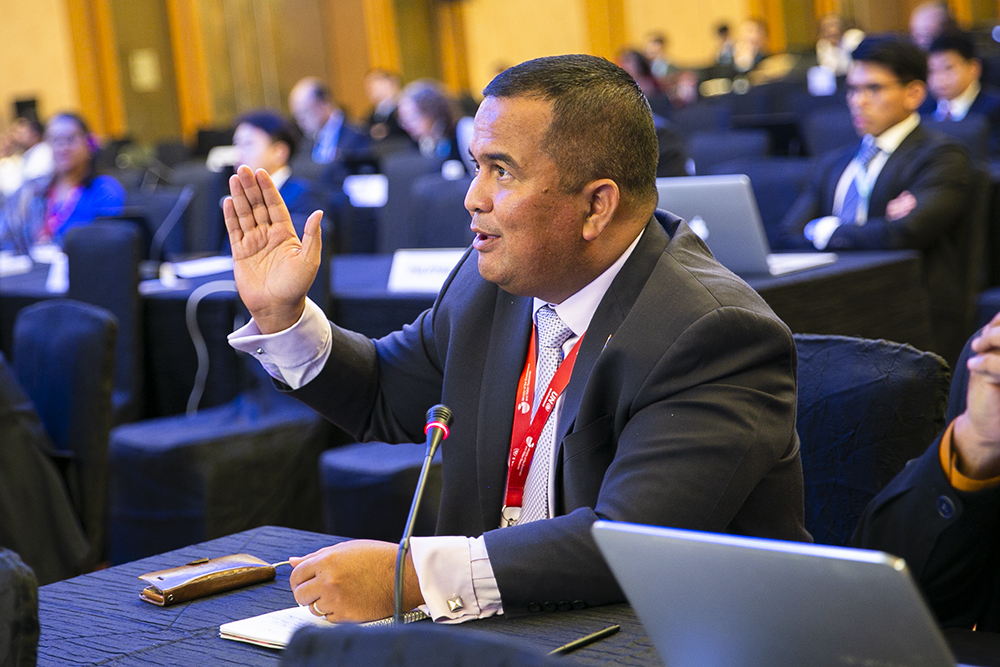
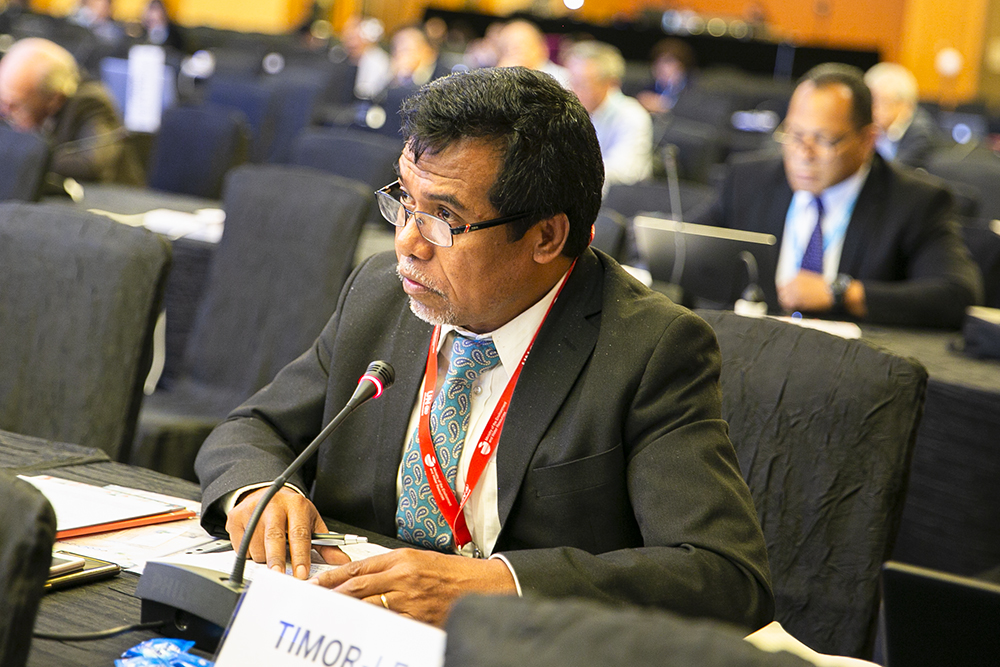
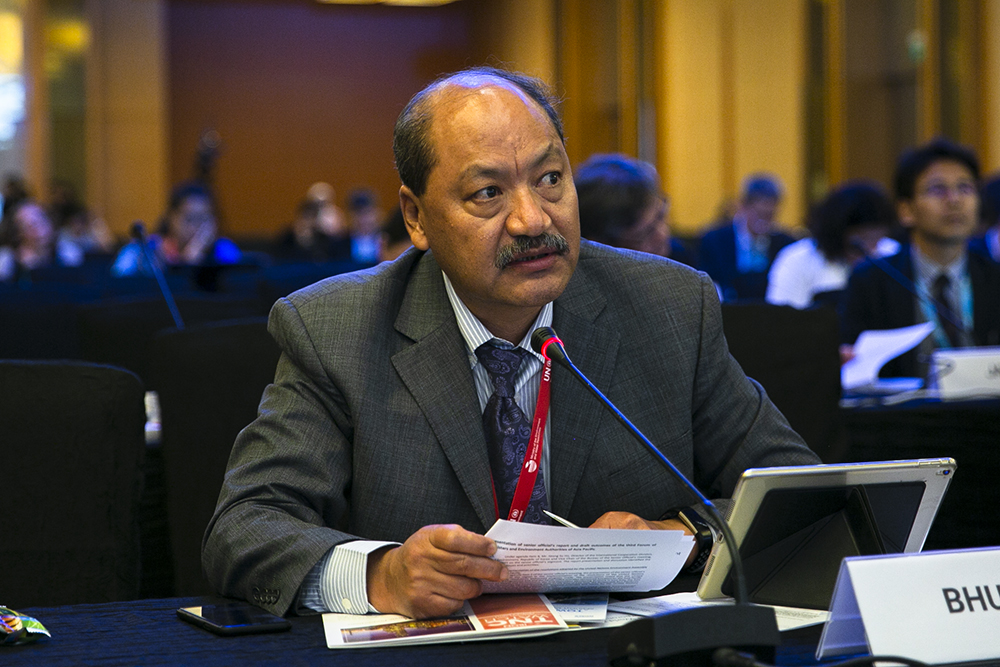
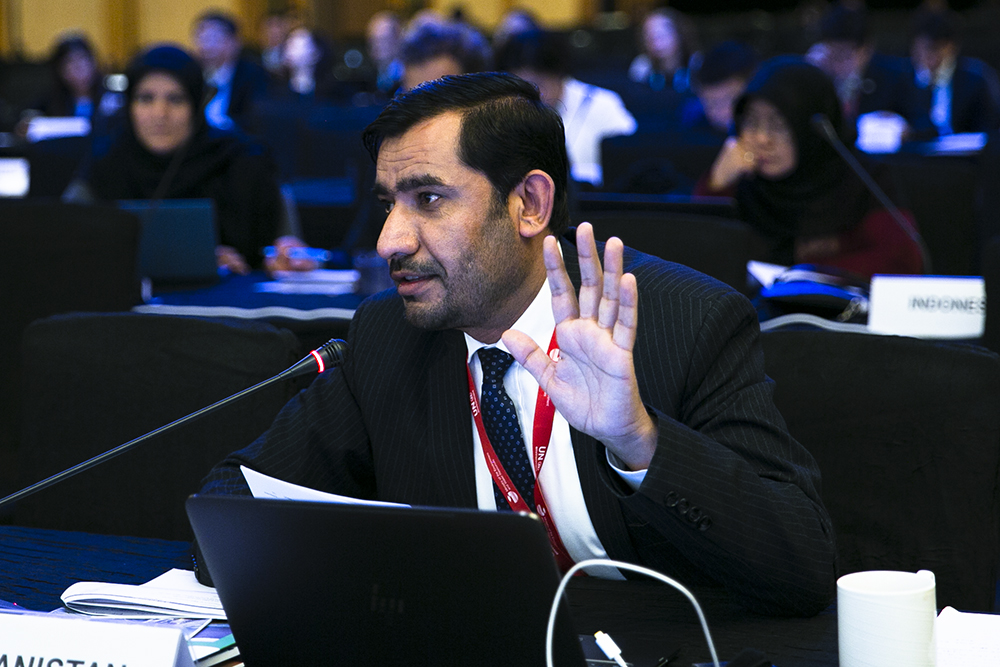
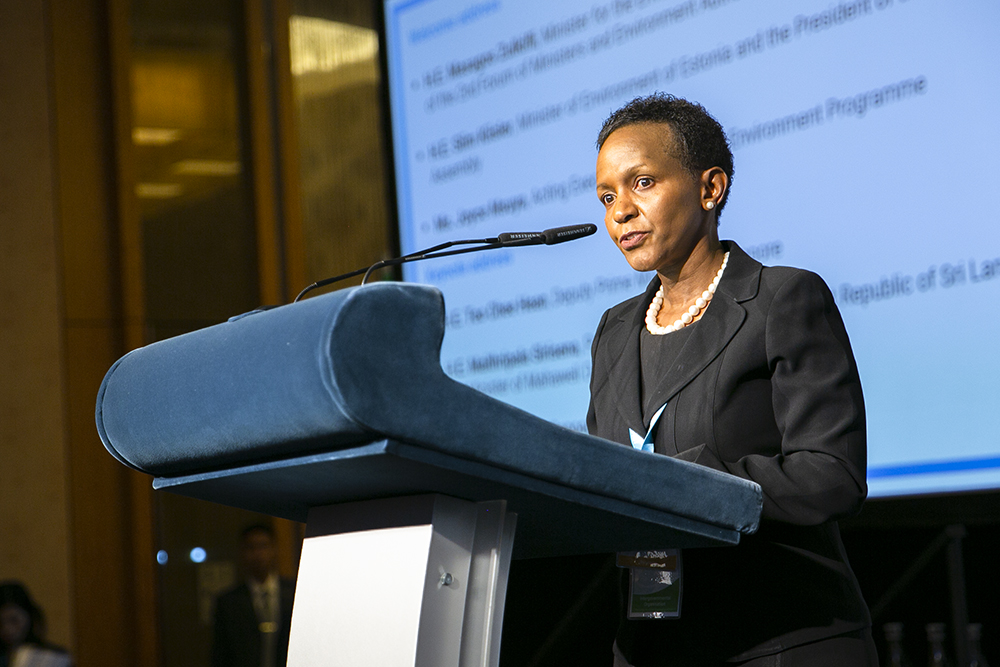
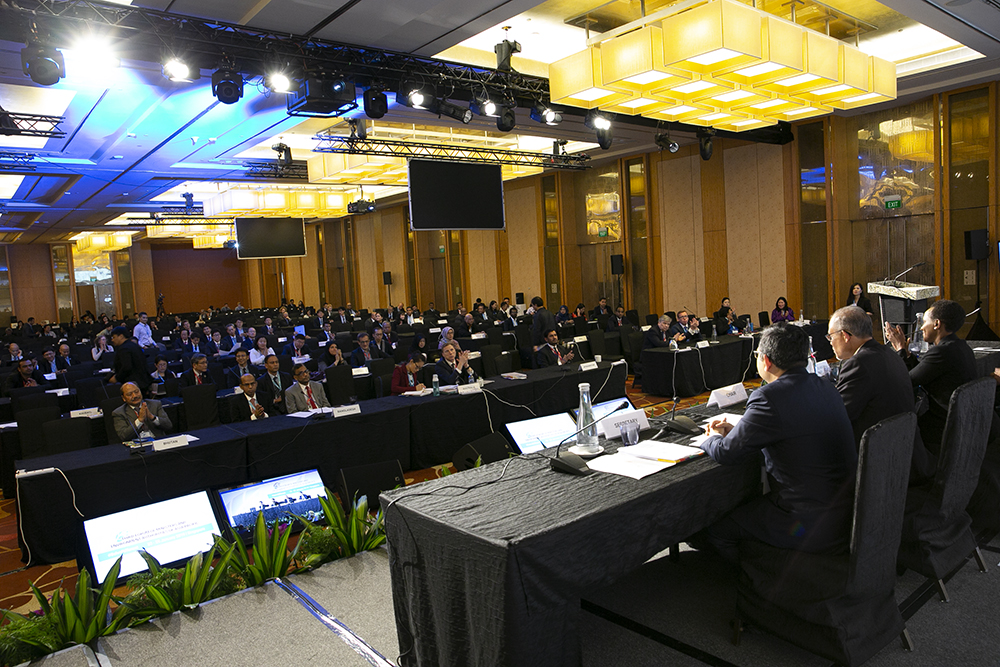
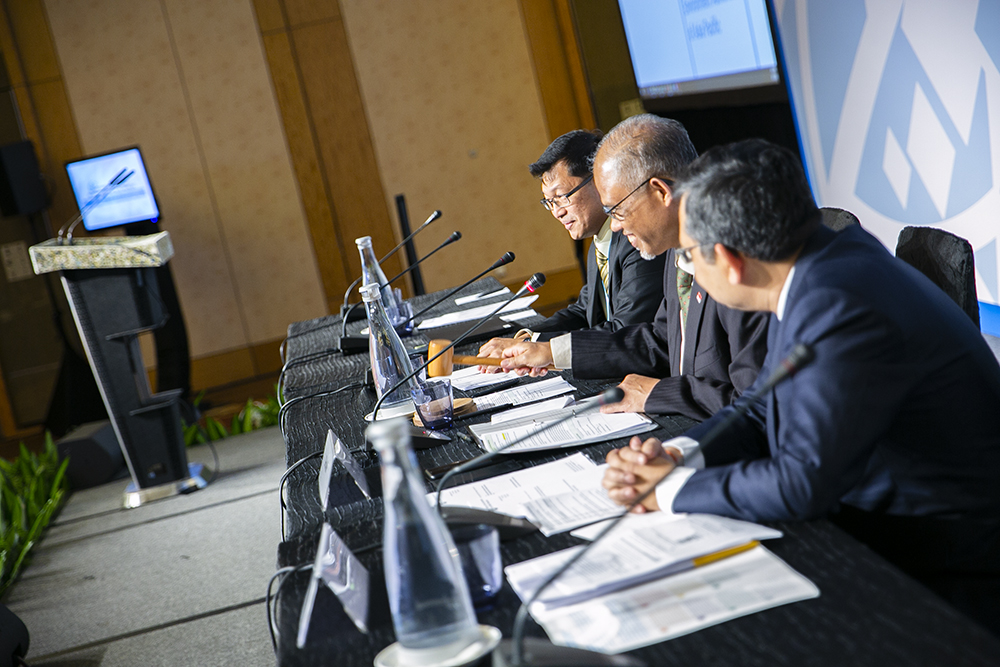
Side Event - Making the Money Flow: Policy Levers and Financing Vehicles for Circular and Green Economies
This event convened leaders from across sectors to consider the challenge of accelerating green finance. Cho Myung-rae, Minster for Environment, Republic of Korea, and Steven Stone, UN Environment, opened the event and introduced the UN Partnership for Action on Green Economy (PAGE), which helps countries develop green economy strategies. Jessica Cheam, Founder and Managing Editor, Eco-Business, moderated a panel featuring Ng Yao Loong, Monetary Authority of Singapore; Piyush Gupta, CEO, DBS Group; Elvi Nasution, National Australia Bank; and Hoseok Kim, Korea Environment Institute.
Discussions emphasized the centrality of partnerships between government and the financial sector to align policies and incentives that will unlock and guide green finance. Participants also discussed the value of mainstreaming environmental principles in government, public-private collaboration to balance financial risk, as well as standardizing environmental terminology and accounting so the private sector can better consider environmental risk.
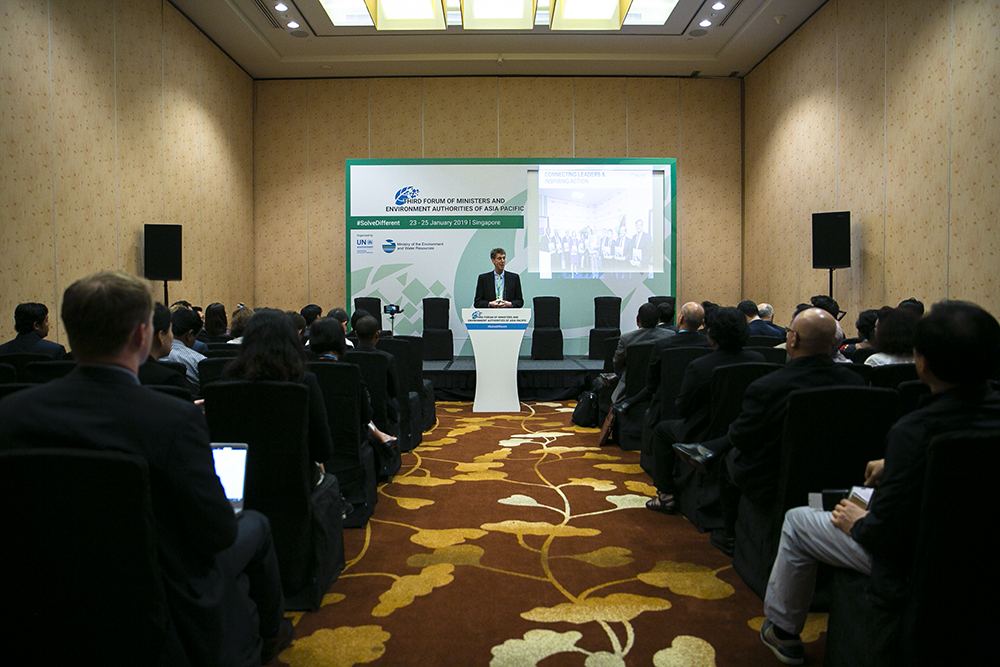
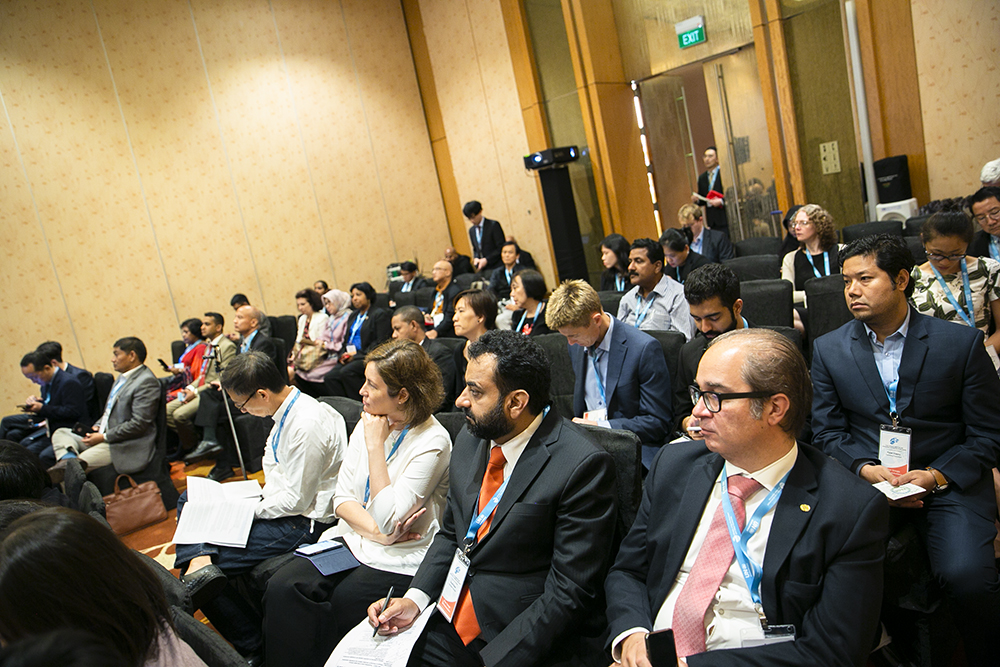
Side Event - Incentivizing Action to Beat Plastic Pollution
This event shared experiences and discussed the need to incentivize stakeholders in the transition to reduce plastic pollution, particularly in the ocean. S.P.S. Parihar, Chairman, Central Pollution Control Board, India, opened the session saying that economic growth has fueled a rise in material standards of living, but that there is a need to decouple such growth from heavy resource use. He highlighted solutions such as bans on single-use plastics, and reuse of plastics in road construction.
Participants watched a video comparing the tragedy of the mythical King Midas, whose touch turned even his own food and drink to gold, to the way in which humans are turning the world into plastic: cheap and convenient, plastic has become ubiquitous to the point that people barely notice it, and yet this “magic material” has created complex, unexpected problems that, as for Midas, are not what we had hoped for.
Kakuko Nagatani-Yoshida, UN Environment, said that China’s ban on importing plastic waste will displace more than 111 million metric tons of plastic waste by 2030, creating a need for other countries to “pick up the mantle” of plastic waste recycling. WWF and food industry representatives highlighted their own actions toward dealing with plastics, and Edwin Seah, Head of Sustainability and Communications, Food Industry Asia, called for the plastics industry to work with stakeholders on two key areas: data and dialogue.
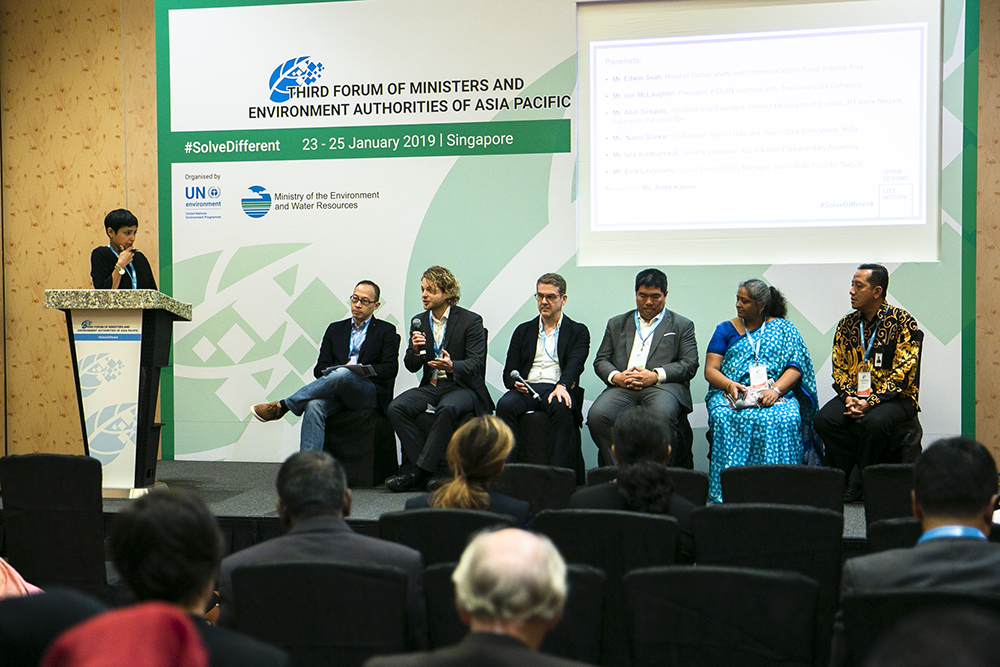
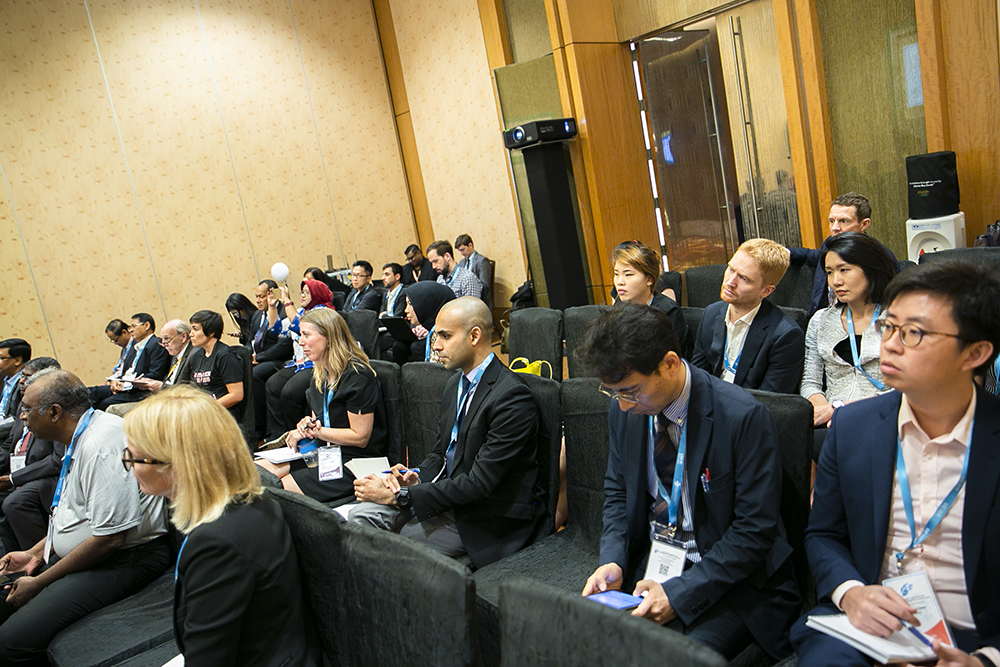
Official Reception hosted by the Government of Singapore
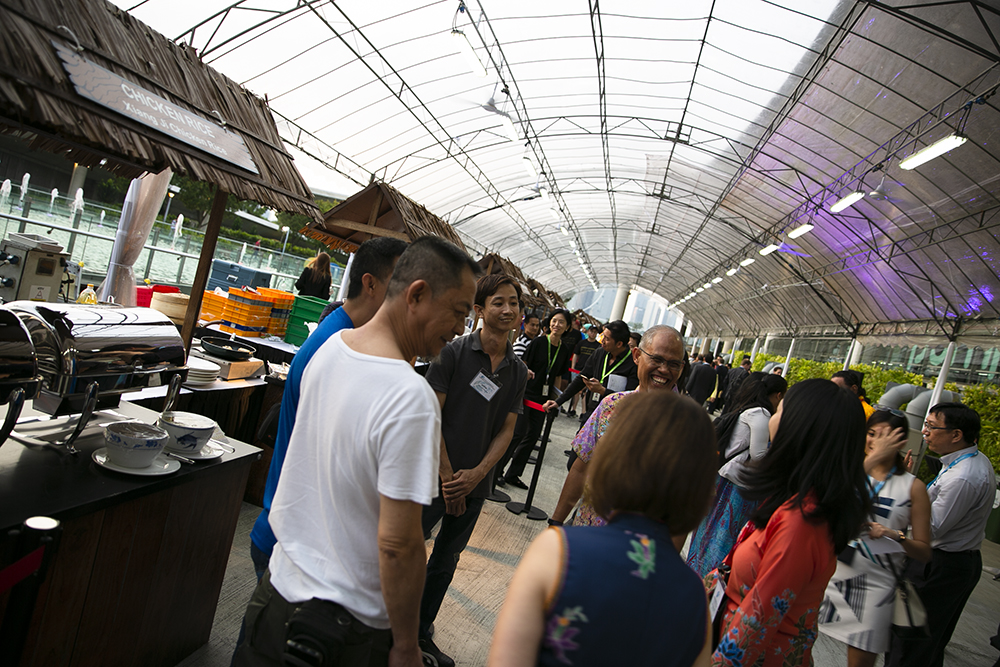
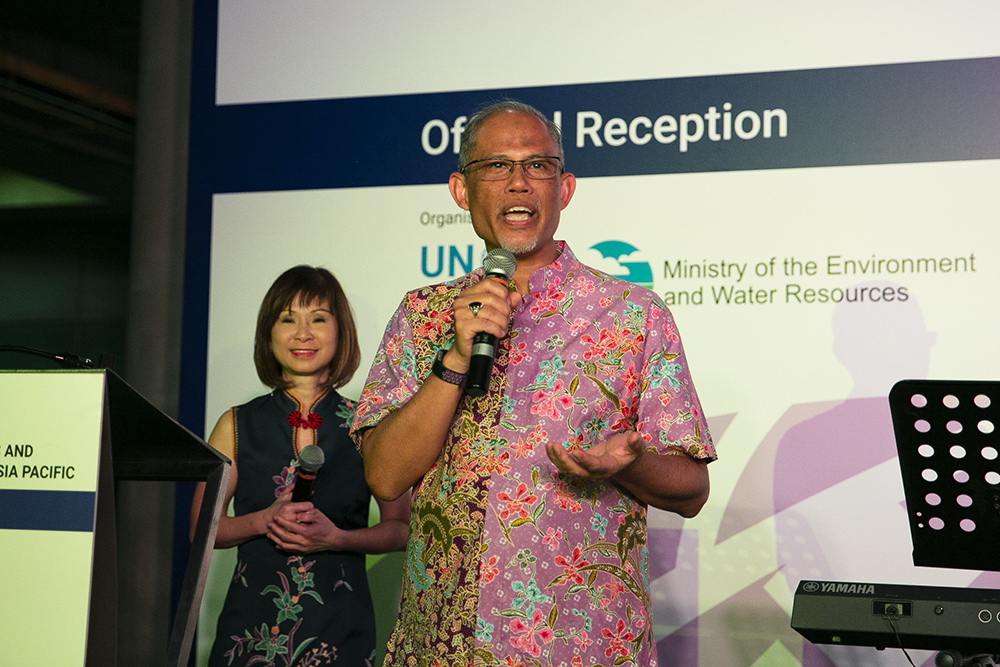
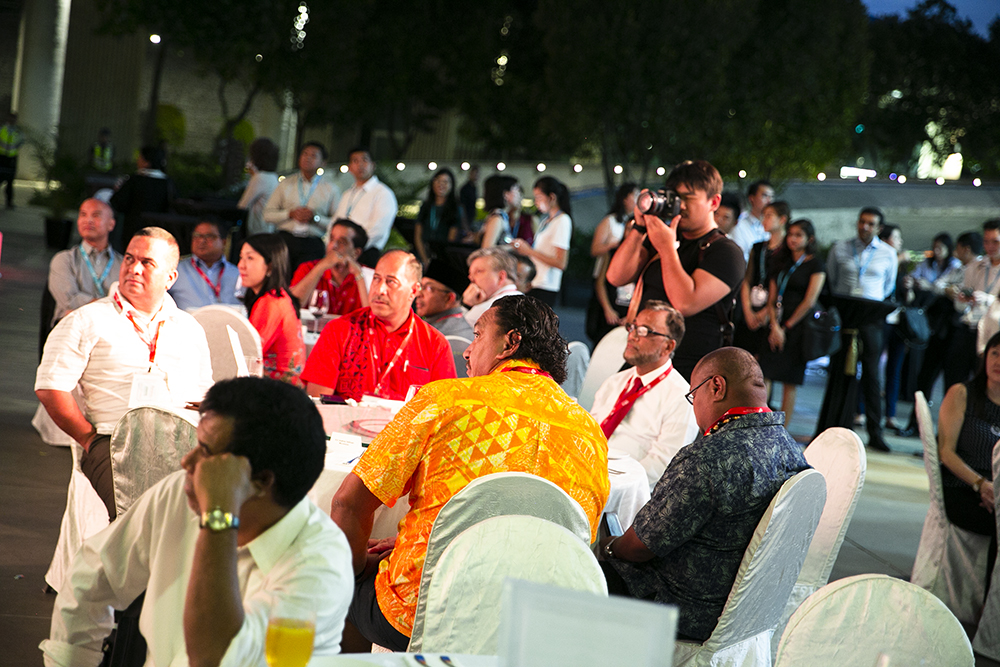
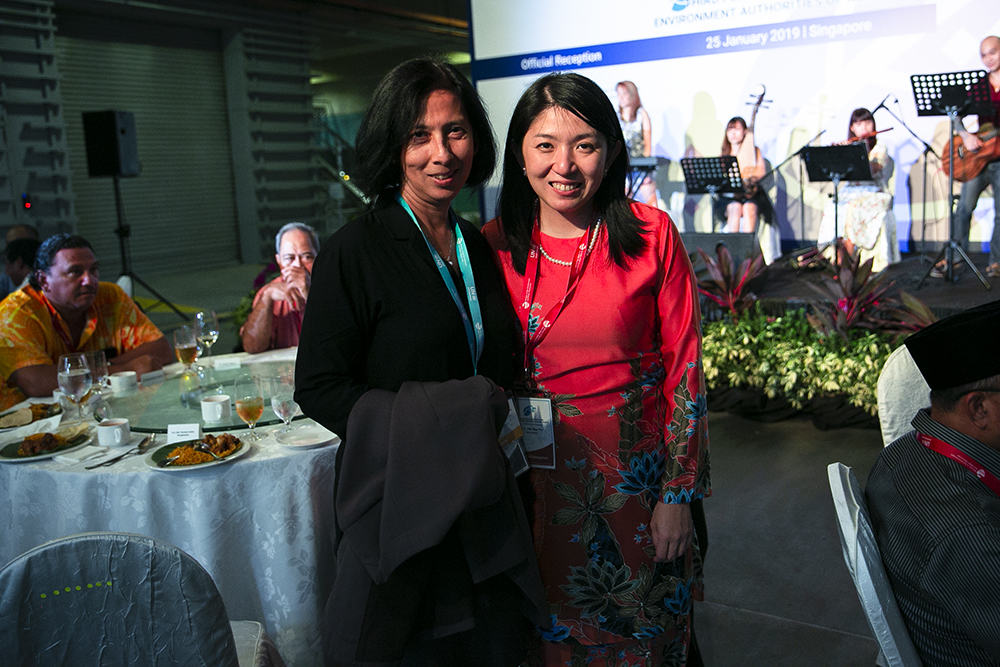
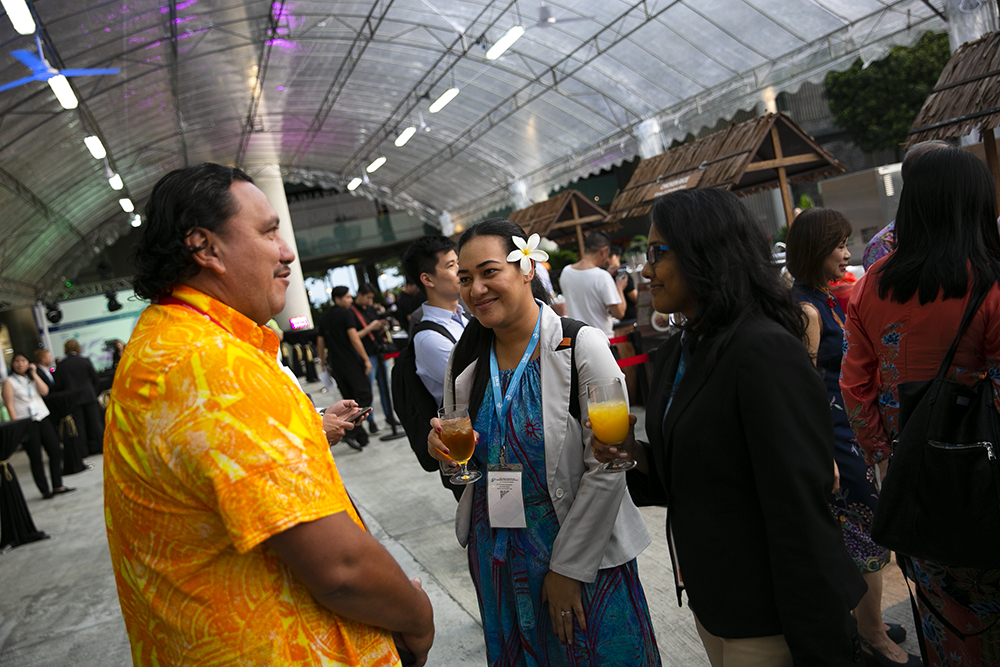
Around the Venue
